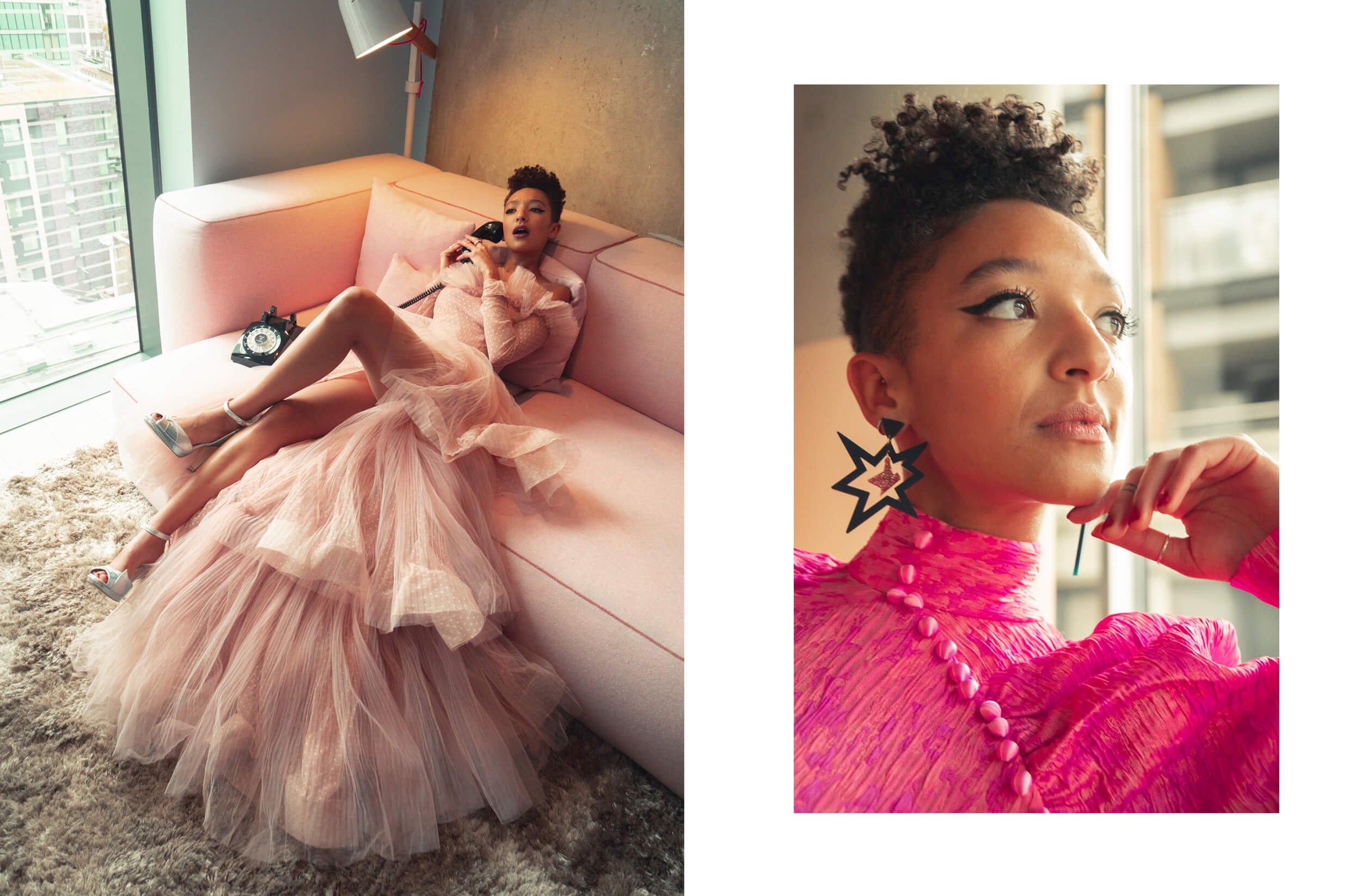If you haven’t seen “Sex Education” on Netflix yet, you must do it now. Not only because the second season will be released on January 17th but because, from what we understand, it will be even better than the first one.
The series paints, in an exceptional way, a mix of fears, uncertainties, self-discoveries, friendships, difficulties in accepting oneself and each other and, of course, talks about sex education like no one has done it before. This TV series, with its themes and its protagonists, should be the TV series that each of us should have seen during our teenage years. Not only because it talks about sex in a fresh and genuine way but also because it represents all of us, sooner or later.
One of the characters of “Sex Education” is Ola, a girl with whom the protagonist Otis (Asa Butterfield) will have a special relationship, which then in the second season will develop more and more. Ola is played by Patricia Allison who is our Cover Story of January, and we couldn’t start the year in a better way: a true feminist, who wants to tell stories of women of color, who loves creativity in all its aspects and who has told us what we can expect from this second season.
You told us what’s the beauty of acting for you, but what made you click with acting?
When I was 10 years old, I was in a school production of “Oliver Twist,” at the Royal Opera House in Covent Garden, because that’s what my primary school was linked to, and I remember being on stage for the first time and genuinely having an epiphany. It was a big moment and even now I know that’s what encouraged me to carry on. So, since I was that age I’ve always wanted to do it because I just loved it, it was like playing, but on a new scale, and I really felt all of the emotions when I was on stage.
What attracted you the most to “Sex Education”?
The script is amazing, the characters are so well written, I couldn’t pass upon the opportunity of getting into something so special and I’m really glad that I did it. I auditioned for many roles and then, in the end, I got Ola, she’s the one for me.
Laurie Nunn is an amazing writer, then we’ve got Ben Taylor who directs it, and for the second season we’ve got Sophie Goodhart and Alice Seabright, as well, as directors, so two female directors, a female writer and the cast is 50/50, it’s very special.
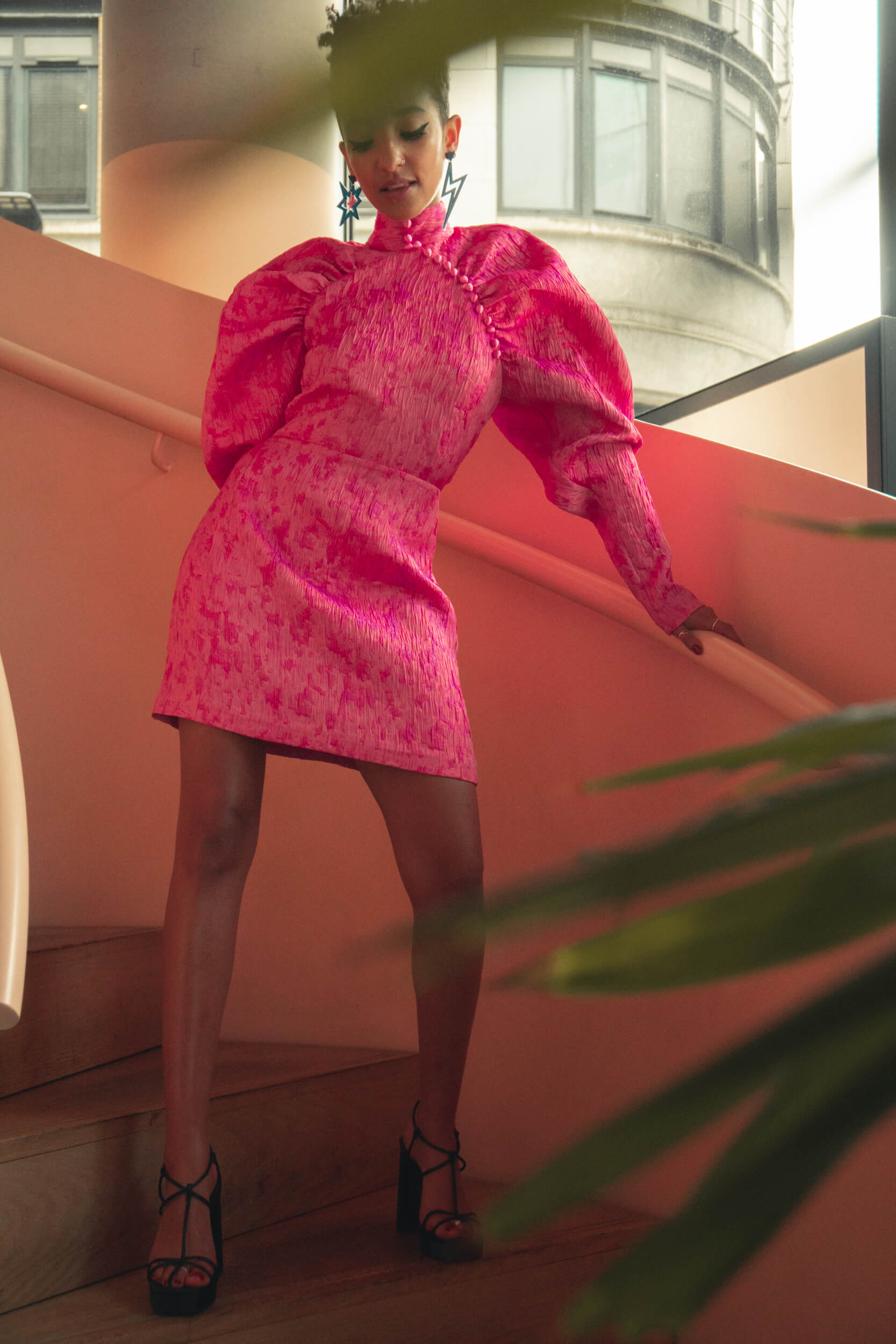
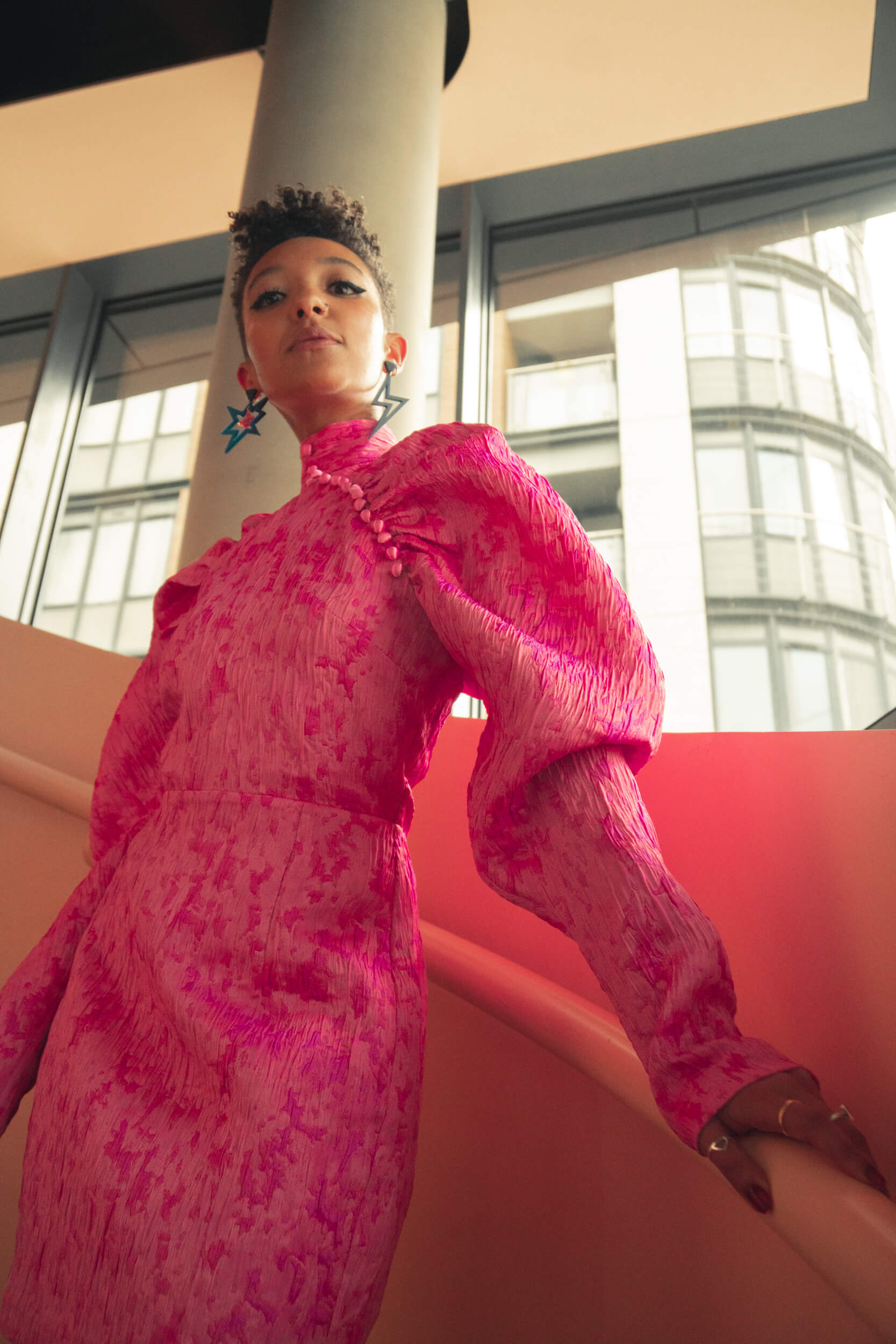
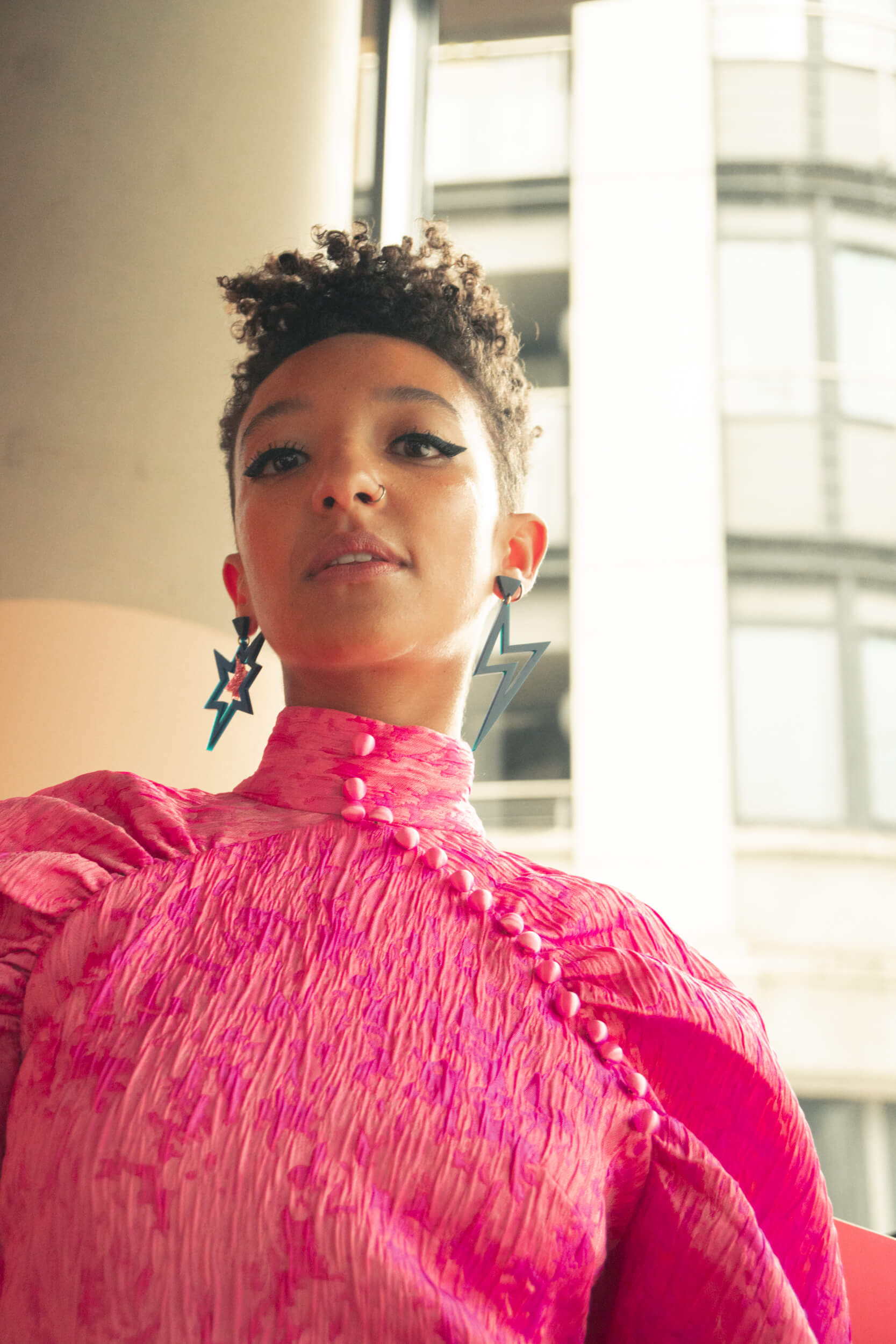
“I got Ola, she’s the one for me.”
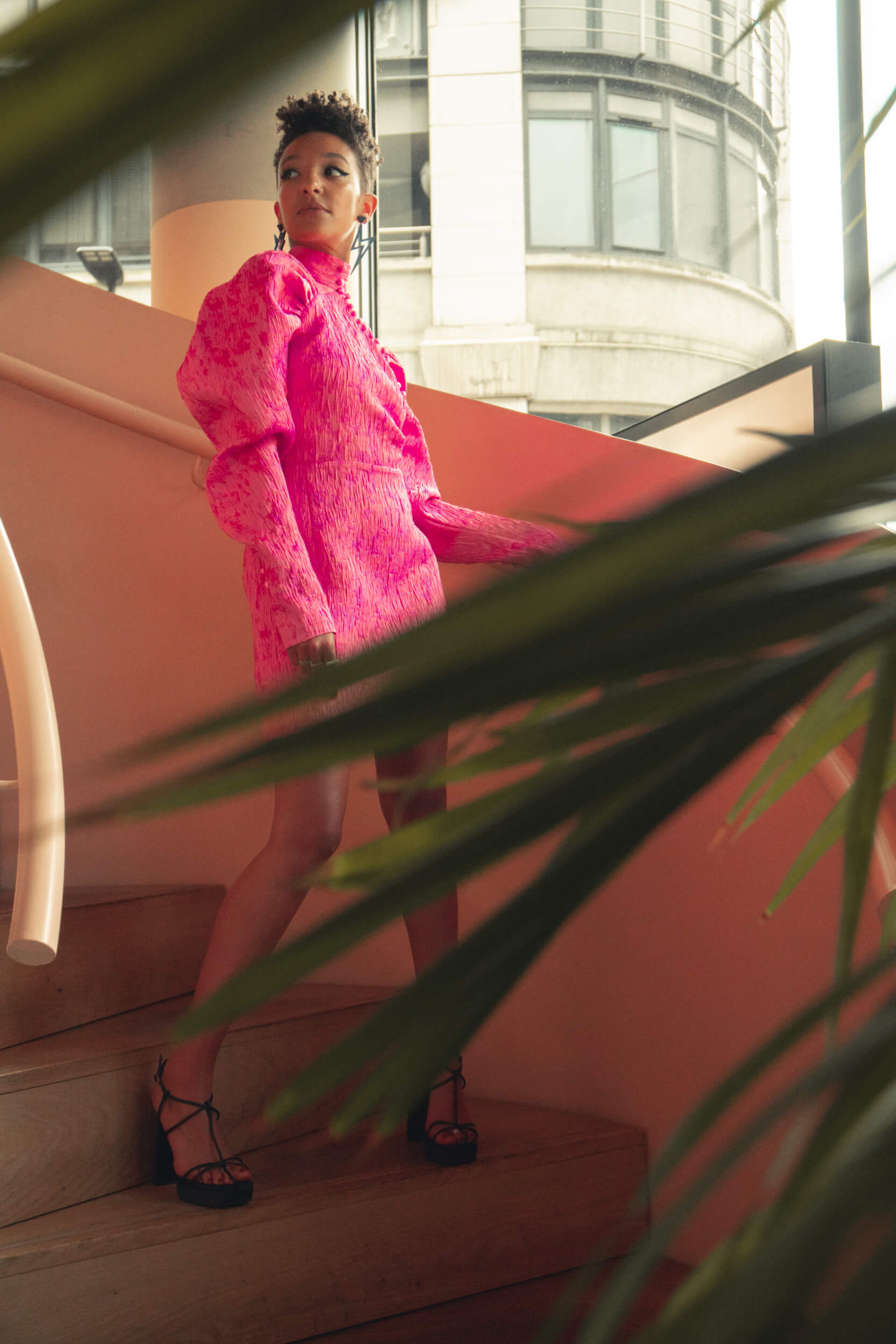
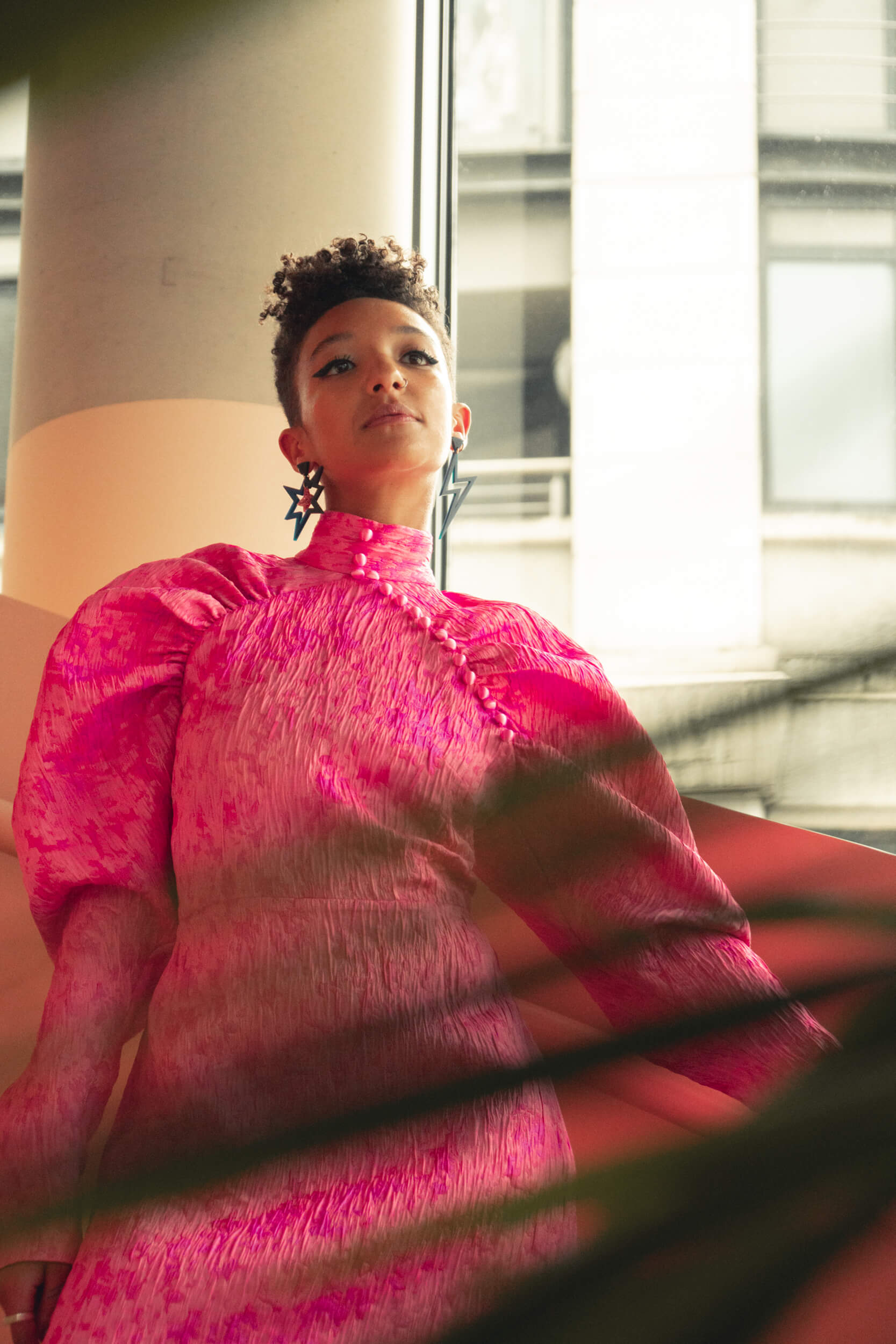
In the series there’s space for every one of you, each character is very specific and I think that’s wonderful, because sometimes when you have primary and secondary characters, you don’t get to know each one of them that well, while in this series you get to know everyone.
Yes, and you definitely get more of a sense of that in the second season, which is nice, because we’ve already set up the characters, we’ve introduced them all, and now we get to really go into their journeys and into their lives. But what’s so great is that they’re all so well written so that you can go in and visit these characters quite easily, they’re quite accessible.
Why do you think this series has had such an impact?
I think it’s new, innovative and a fresh way of looking at sex, that isn’t grotesque. It touches upon subjects that are uncomfortable, sometimes really uneasy, and we are seeing characters going through their first sexual experiences as teenagers and making that okay. It’s not a taboo, and there are lots of subjects that we are putting a light on just saying that it’s okay to be what it is. I think that’s the beauty of the show and the beauty of the characters because we’re living in a world where we’re craving to be accepted.
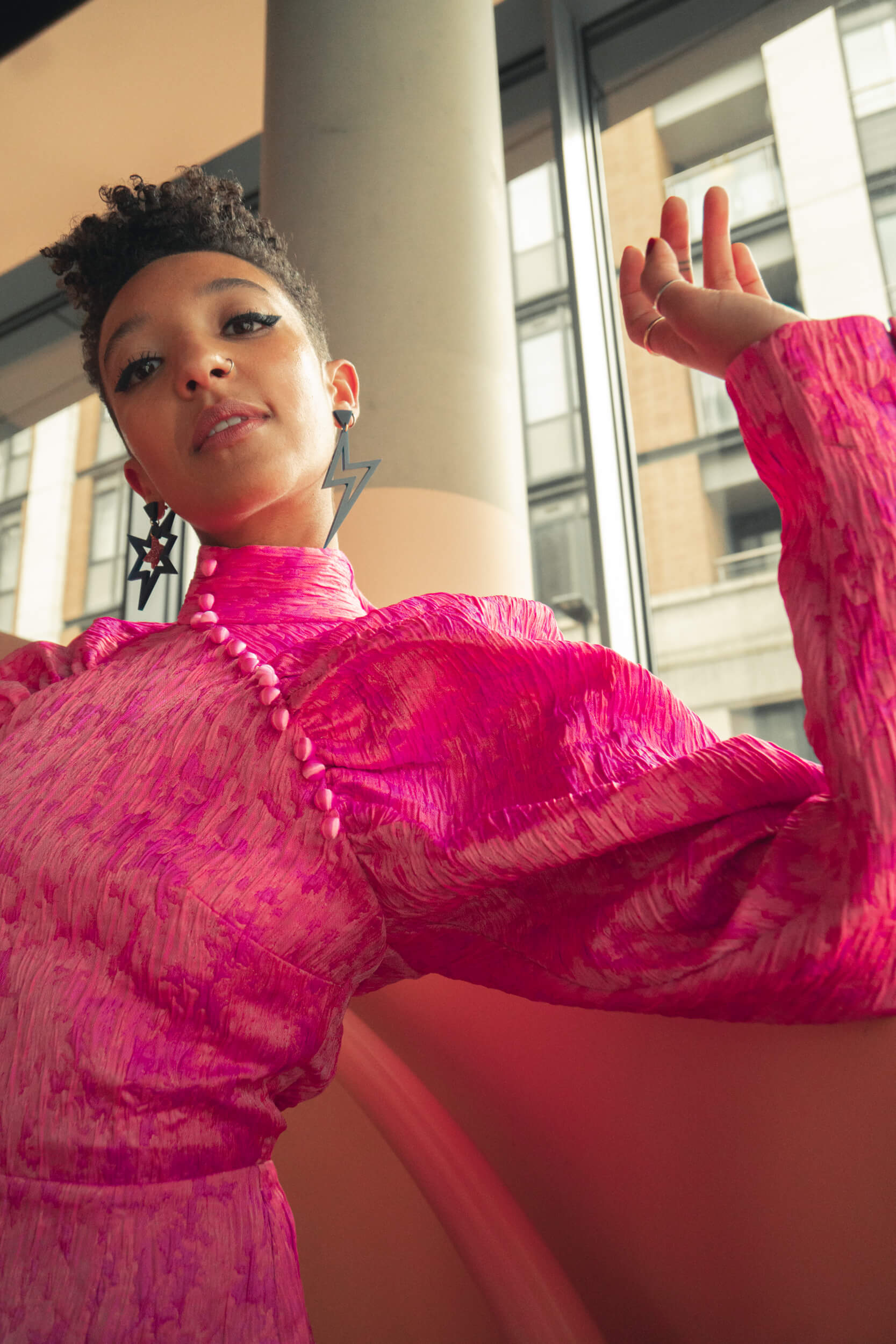
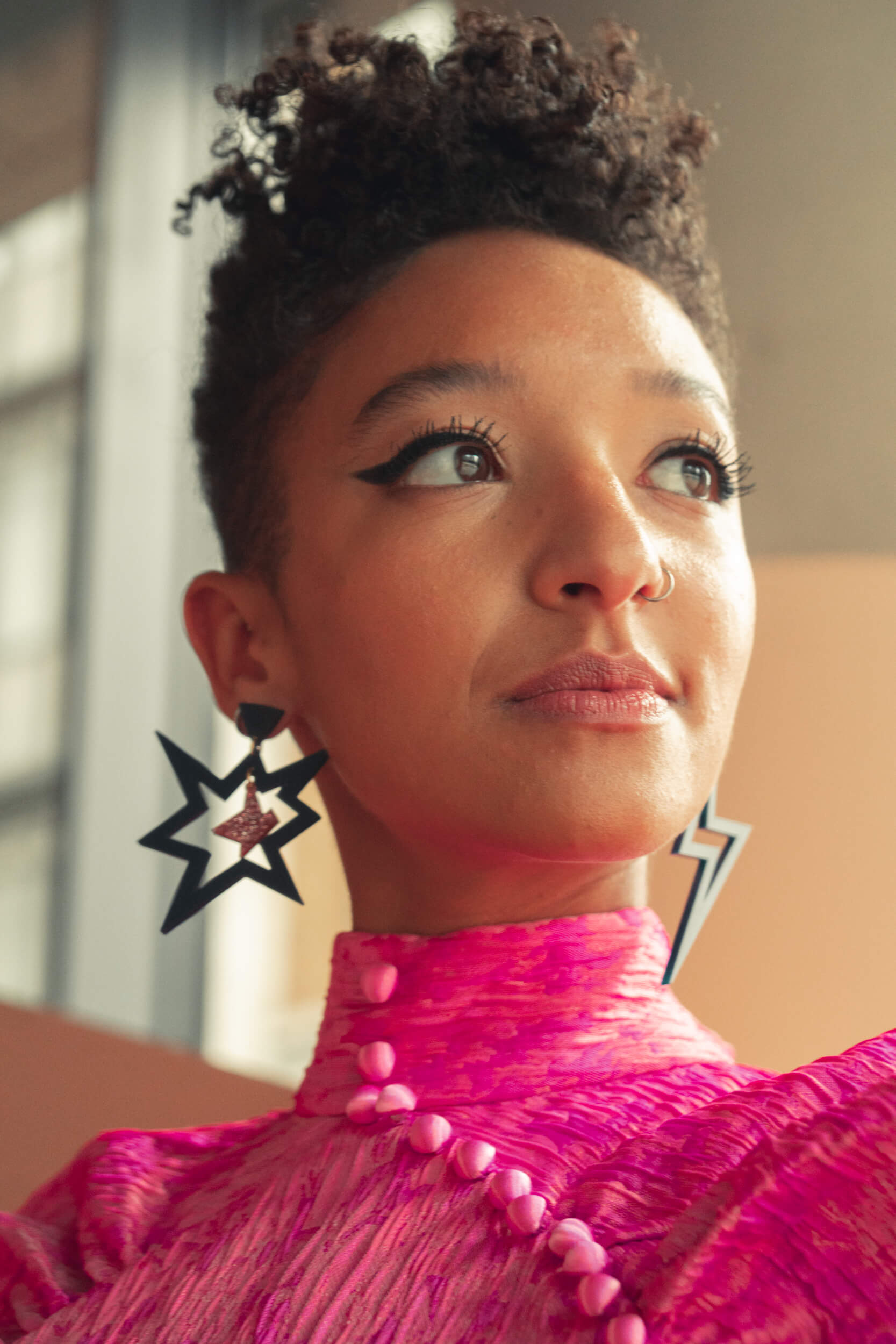
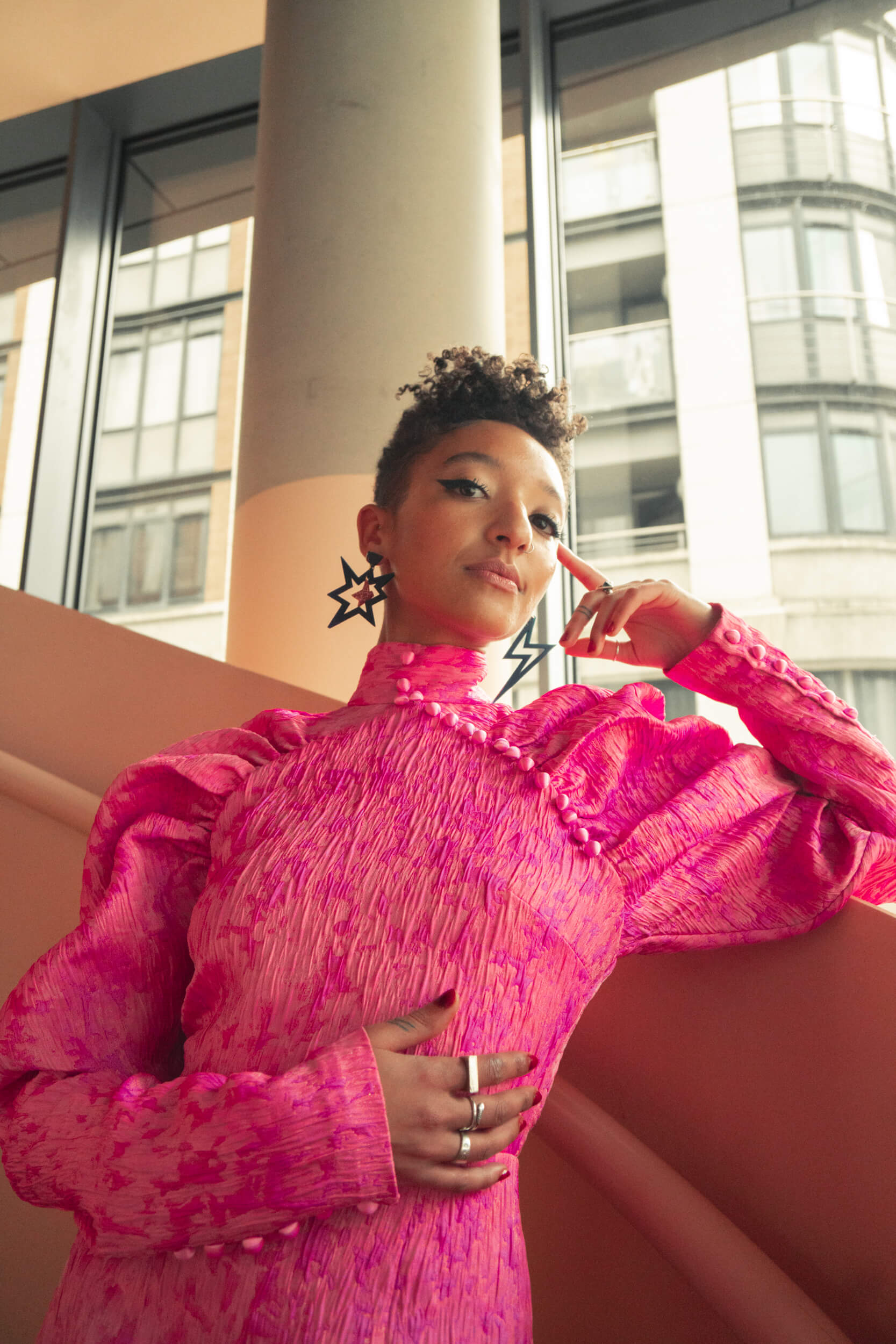
“I think it’s new, innovative and a fresh way of looking at sex, that isn’t grotesque.”
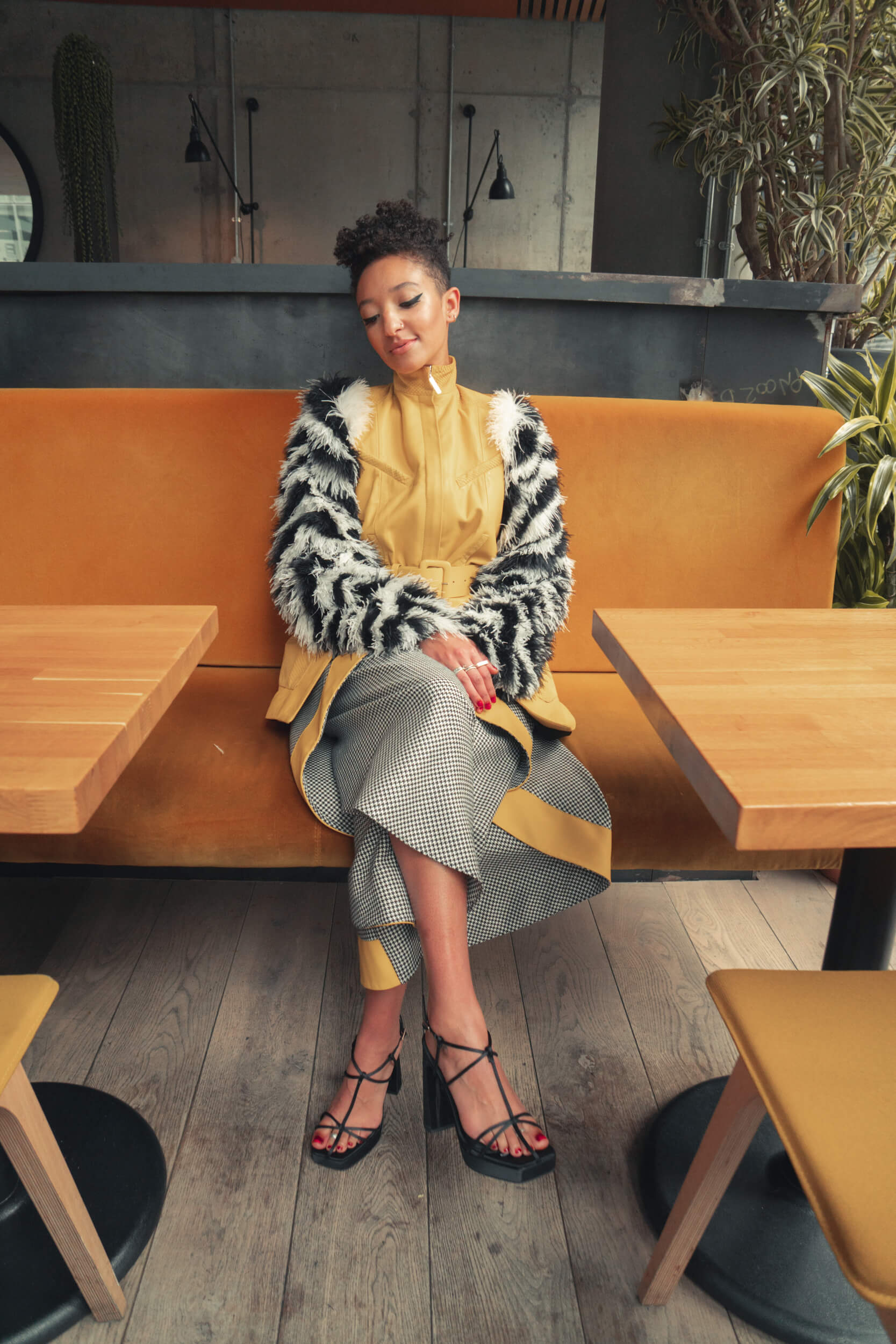
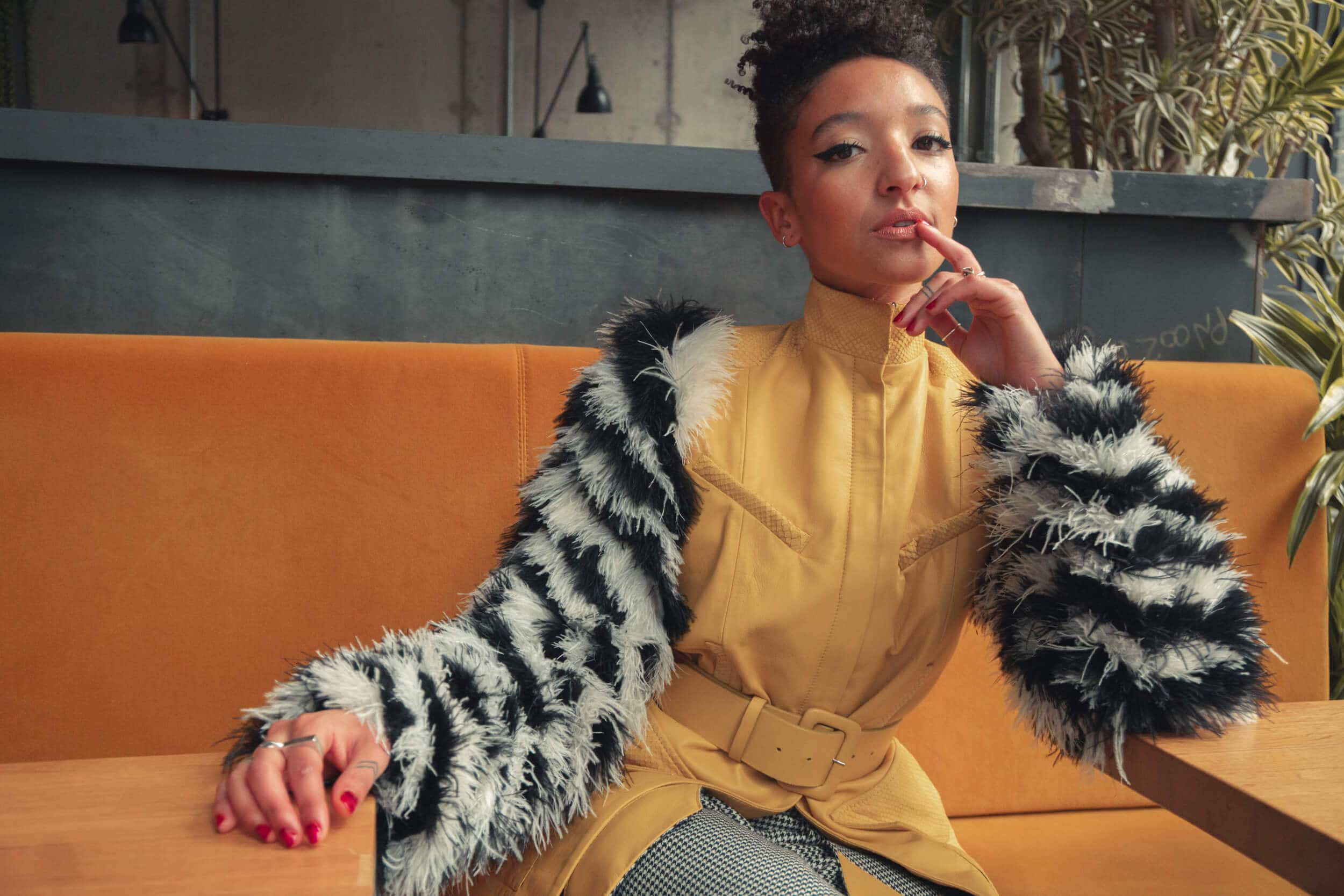
Have you ever thought: “I wish ‘Sex Education’ was on when I was in high school?”
Definitely. My sexual education at school was really limited and I wish I had some sort of level of comfort even as Ola does. I think she’s quite confident in herself and very self-assured and knows what she wants, which is difficult for lots of 16-year-olds.
It’s been said that the series is for teenagers as much as it is for adults. Can you picture a table conversation at a family dinner after having watched one of the episodes of “Sex Education?” Do you think it can open a conversation?
Yes, well I have had an experience where I was at a pub and this woman came up to me, she said her son was in love with “Sex Education” and she thanked me for making the show and she said that her son was gay and they’re very close, but he didn’t come out to her. So, when the show came out, he sat her down and made his mom watch it and when Ncuti [Gatwa] was basically doing his scene, he said, “mom, I’m gay.” He used the show to come out to his mom. And then after the show, she was in a good place, she’d seen the way that it could go wrong and he felt the need to tell her, he was like “the show has made me want to tell you that I’m gay,” so it changed their lives, I think. That’s the kind of dialogue they can have within families, even if you think that you’re really close to your parents, maybe there are still some things that you can’t say and I think that the show helps with that.
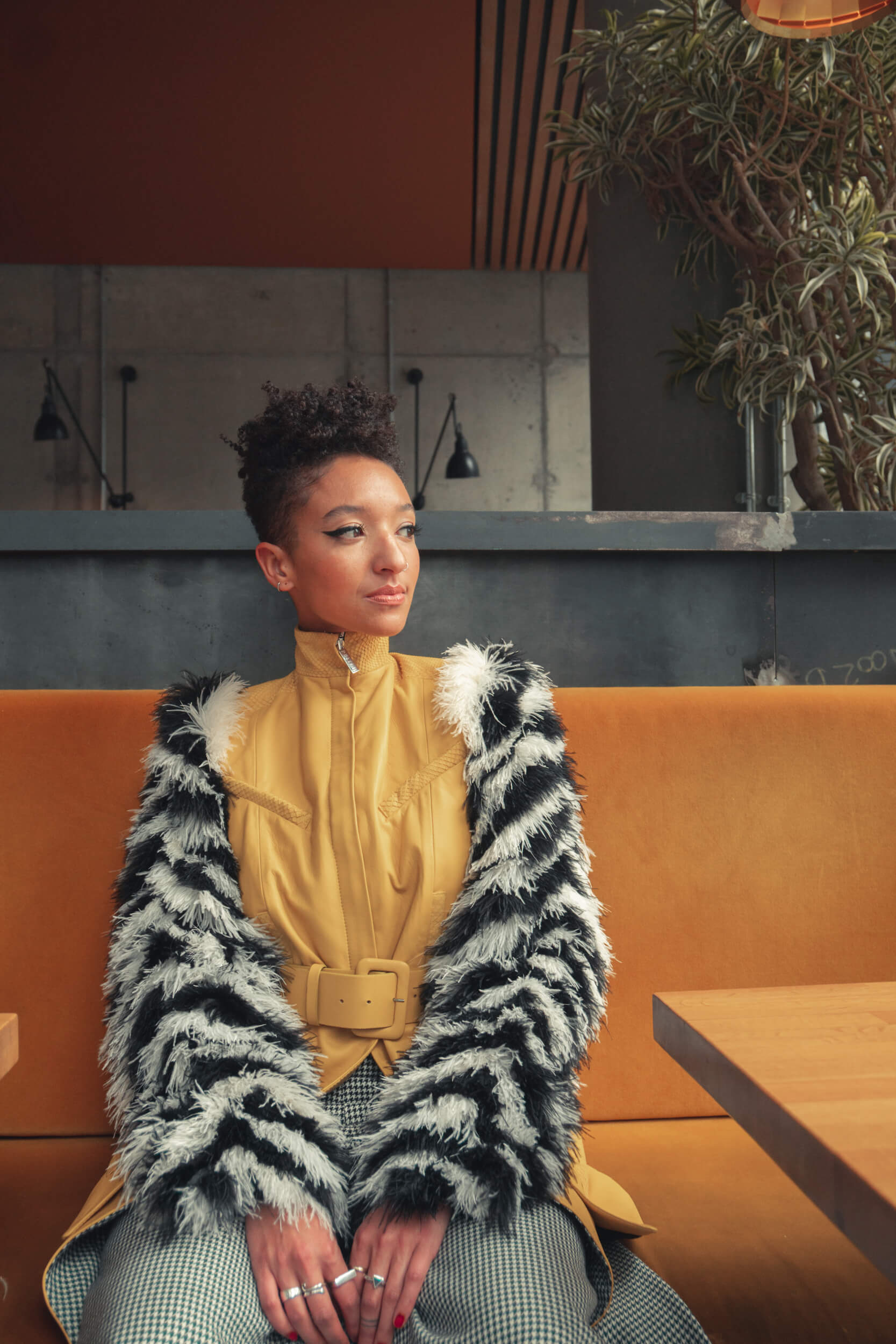
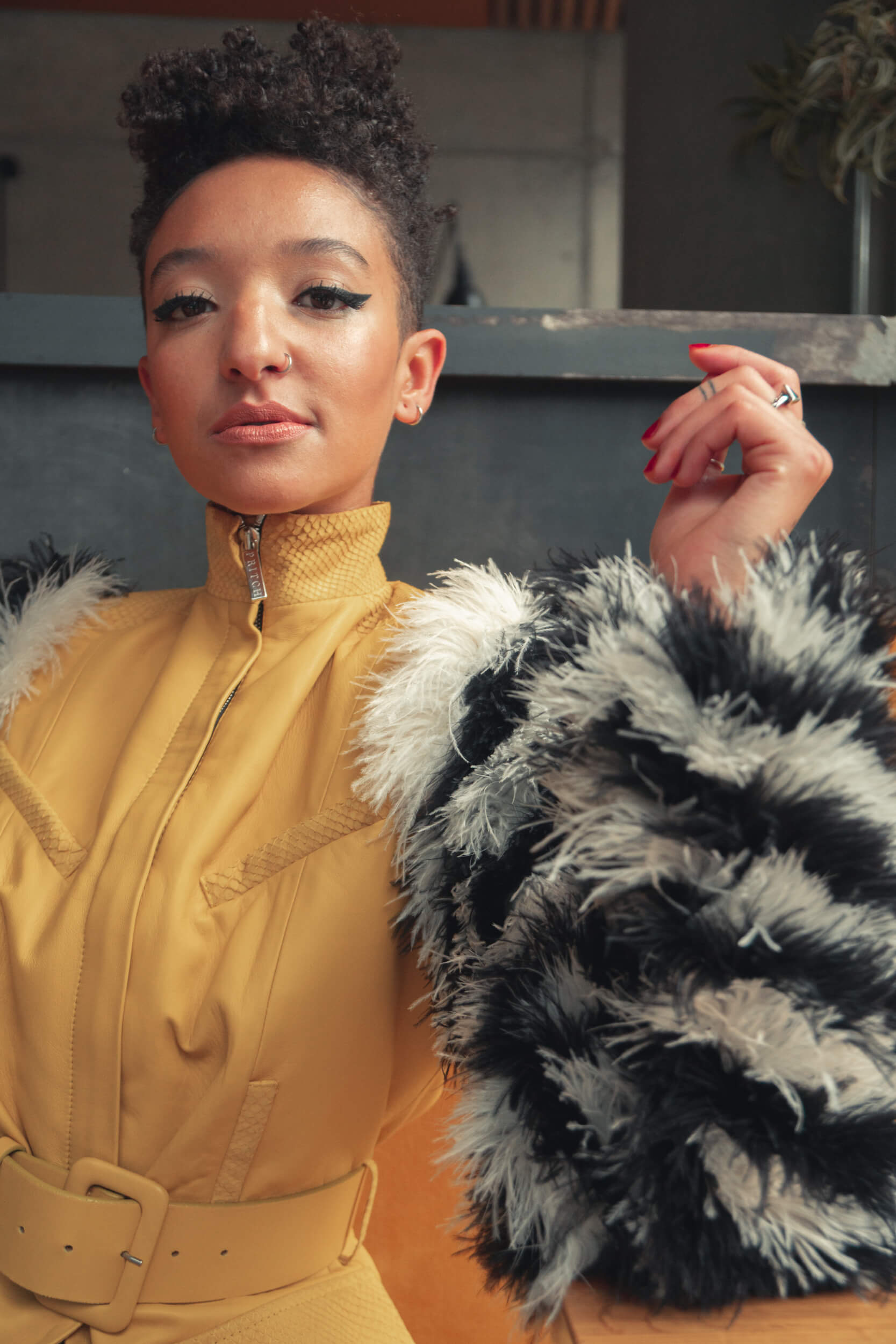
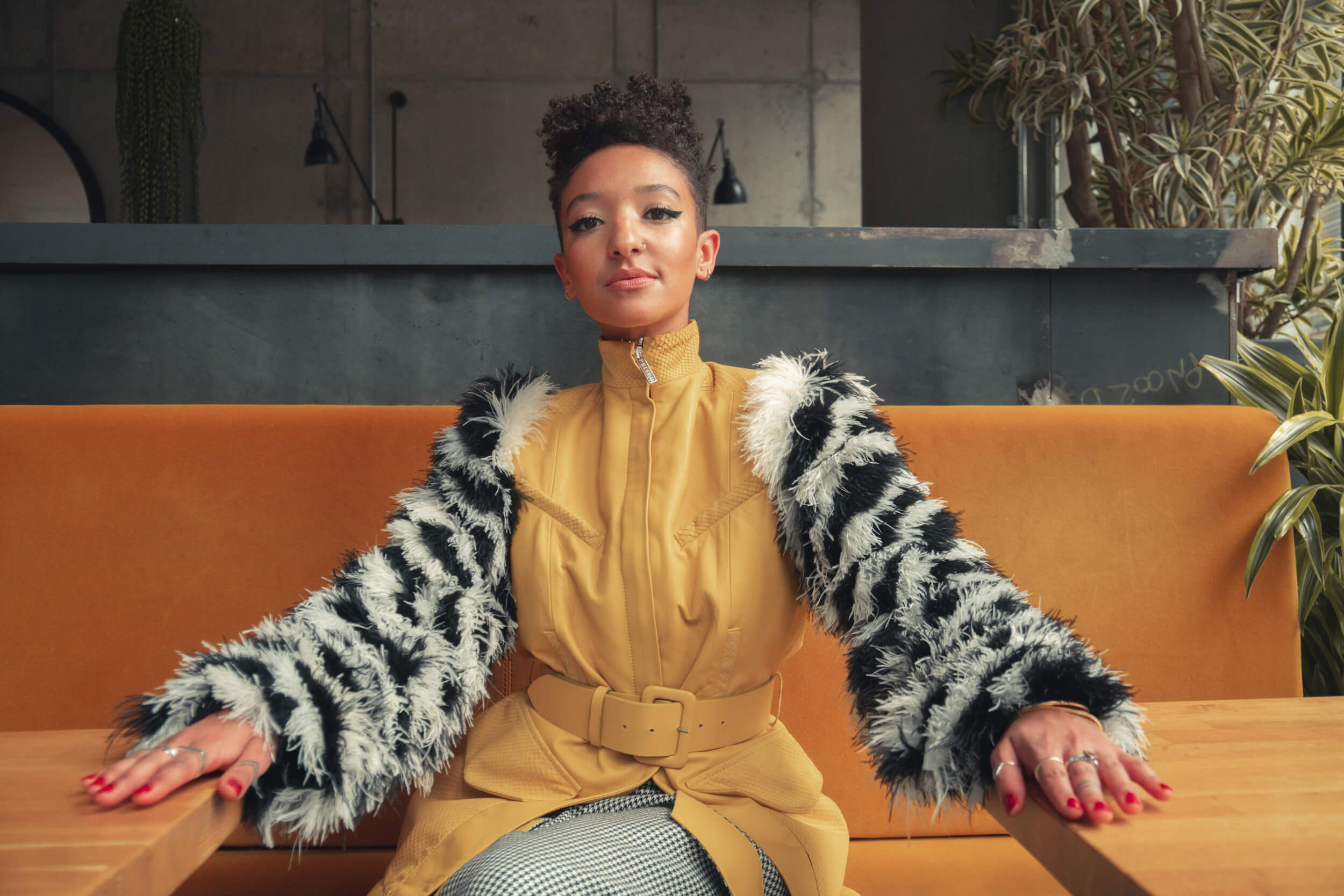
“And then after the show, she was in a good place, she’d seen the way that it could go wrong and he felt the need to tell her, he was like ‘the show has made me want to tell you that I’m gay,’ so it changed their lives, I think.”
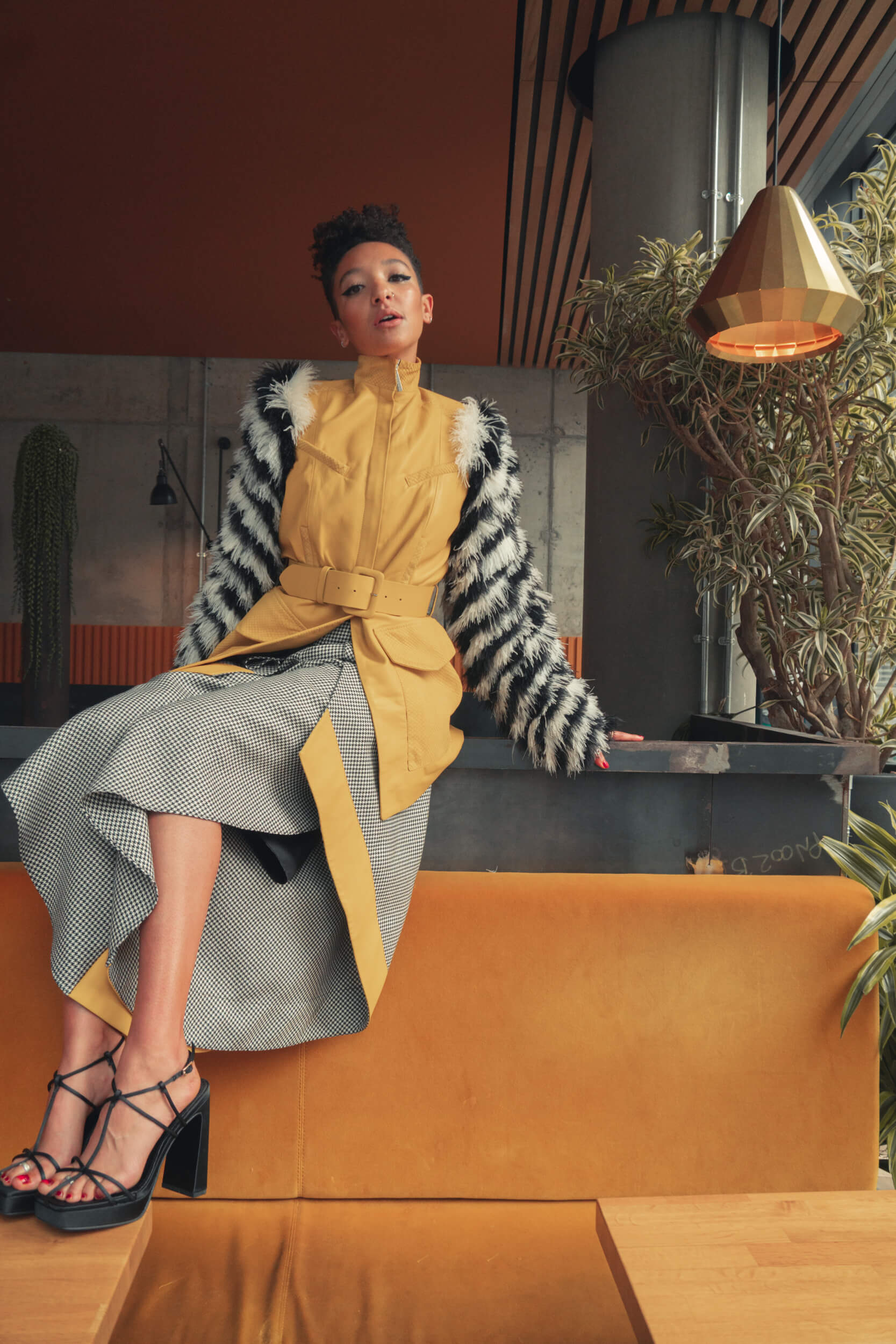
How did you build Ola’s character and how did you connect with her?
For me, she was really easy to connect with. I think she’s very driven and I like her morals, we have the same outlook in that sense. It was nice to have that to latch onto, but she’s so well written that I don’t have to think about as much, it’s in the script and so I just go with it and, often, she surprises me.
Did you have space for improvisation?
Sometimes. Ben Taylor, our director, encouraged that kind of thing on set, which is great because I think it gives comedy such energy and freshness.
What can we expect from the second season?
We can expect a deeper look into the characters; there’s also a really lovely feminine friendship and journey that happens; a coming together of women which I think is incredible and so needed at this time, the show really shows that.
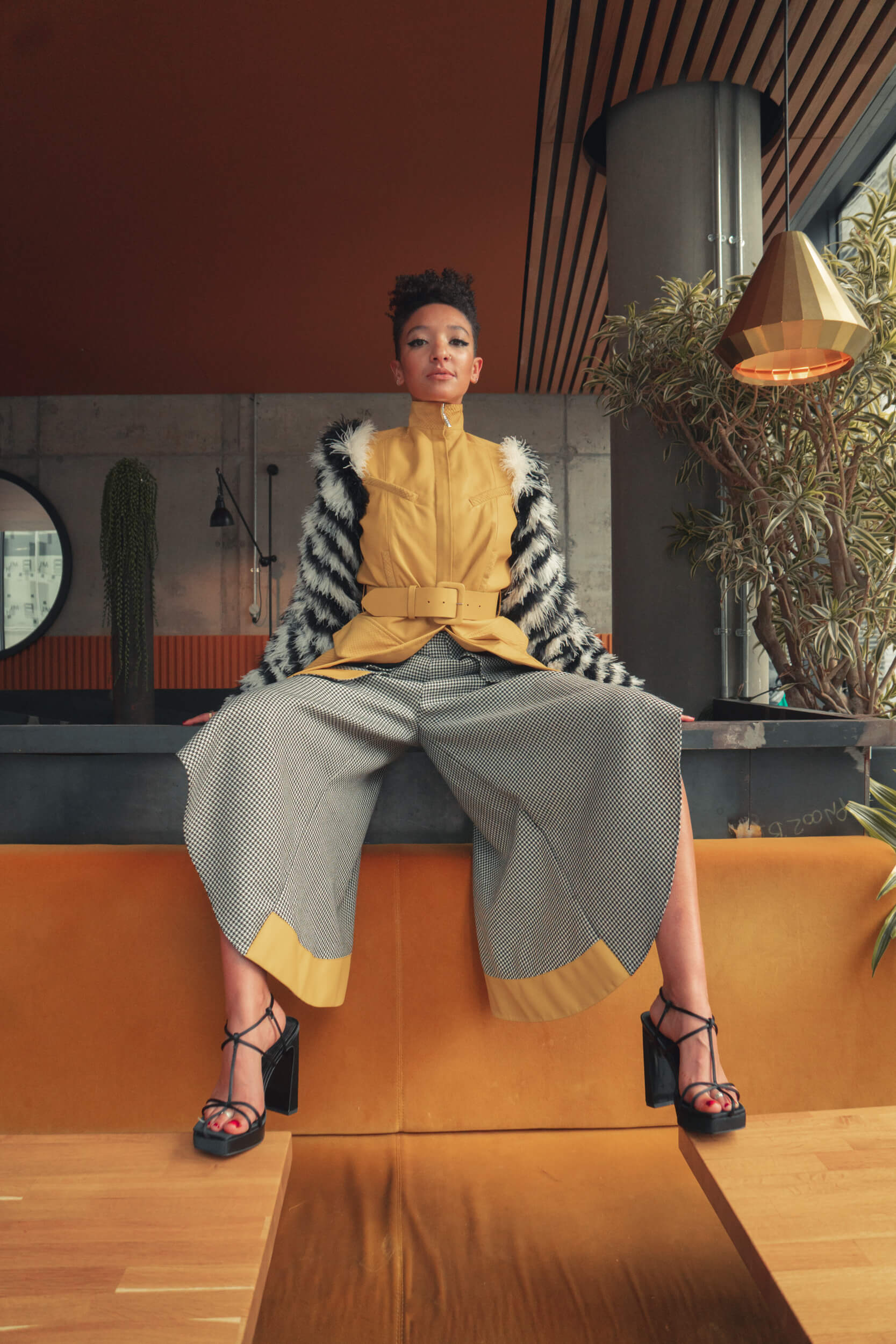
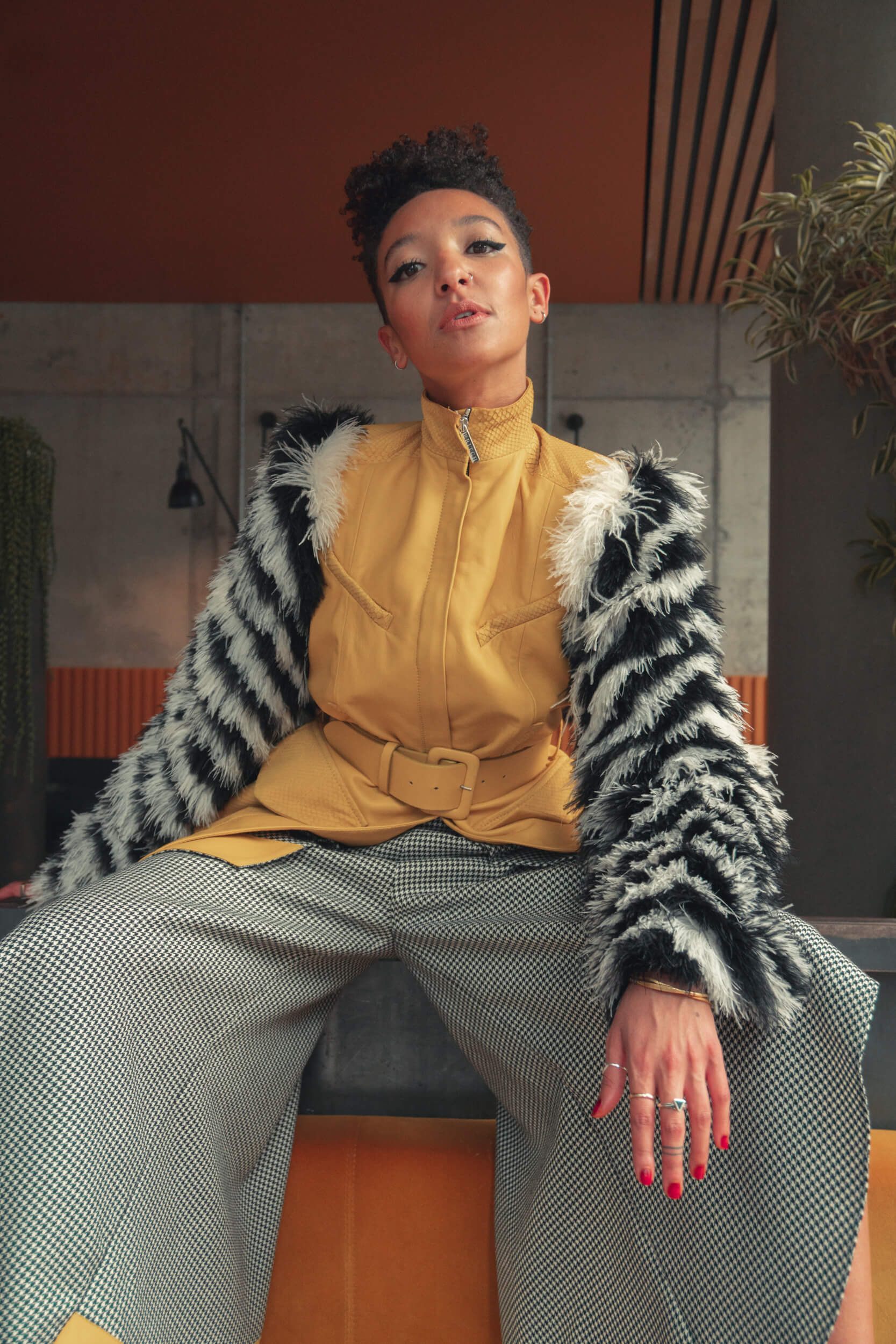
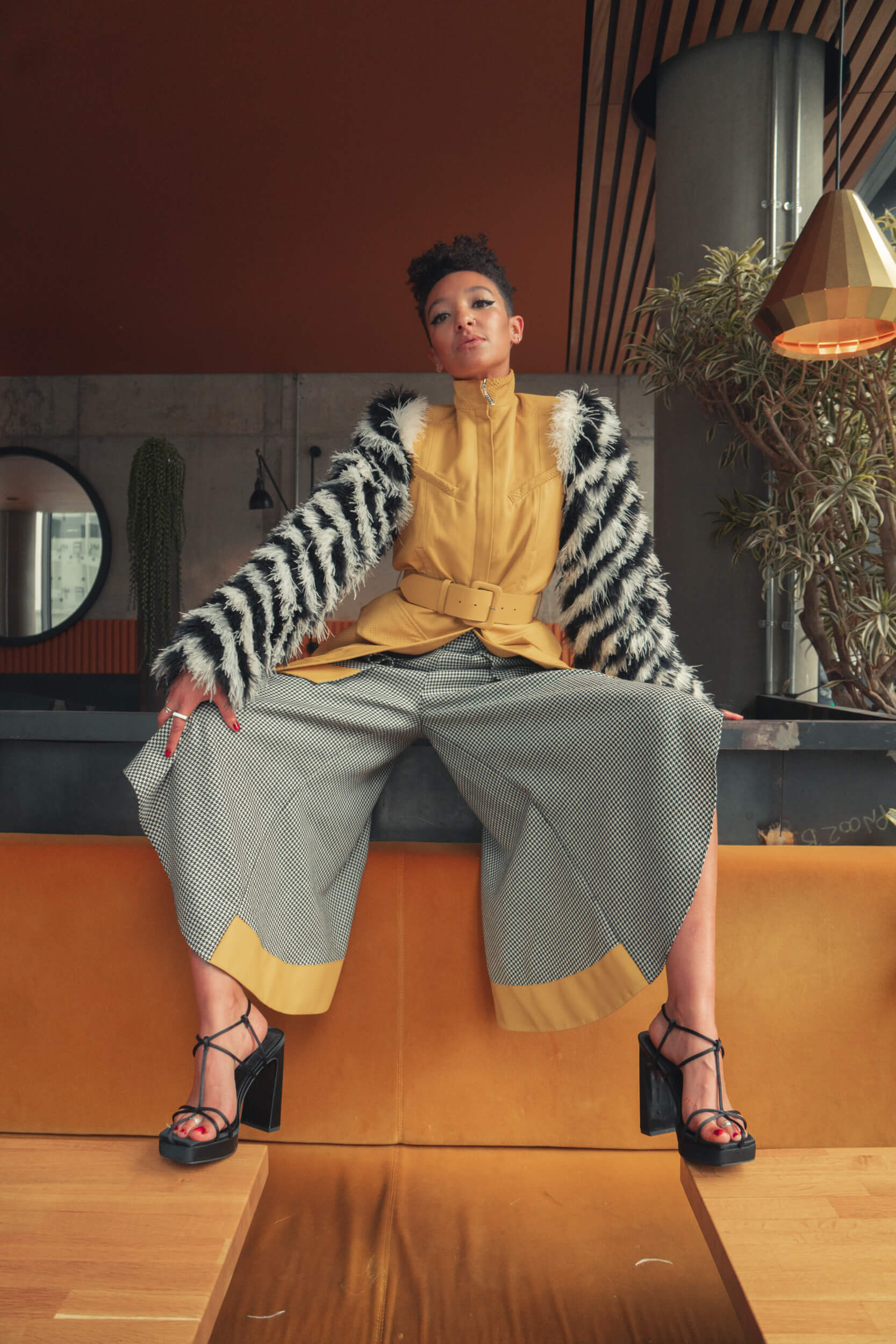
“…a coming together of women which I think is incredible and so needed at this time, the show really shows that.”
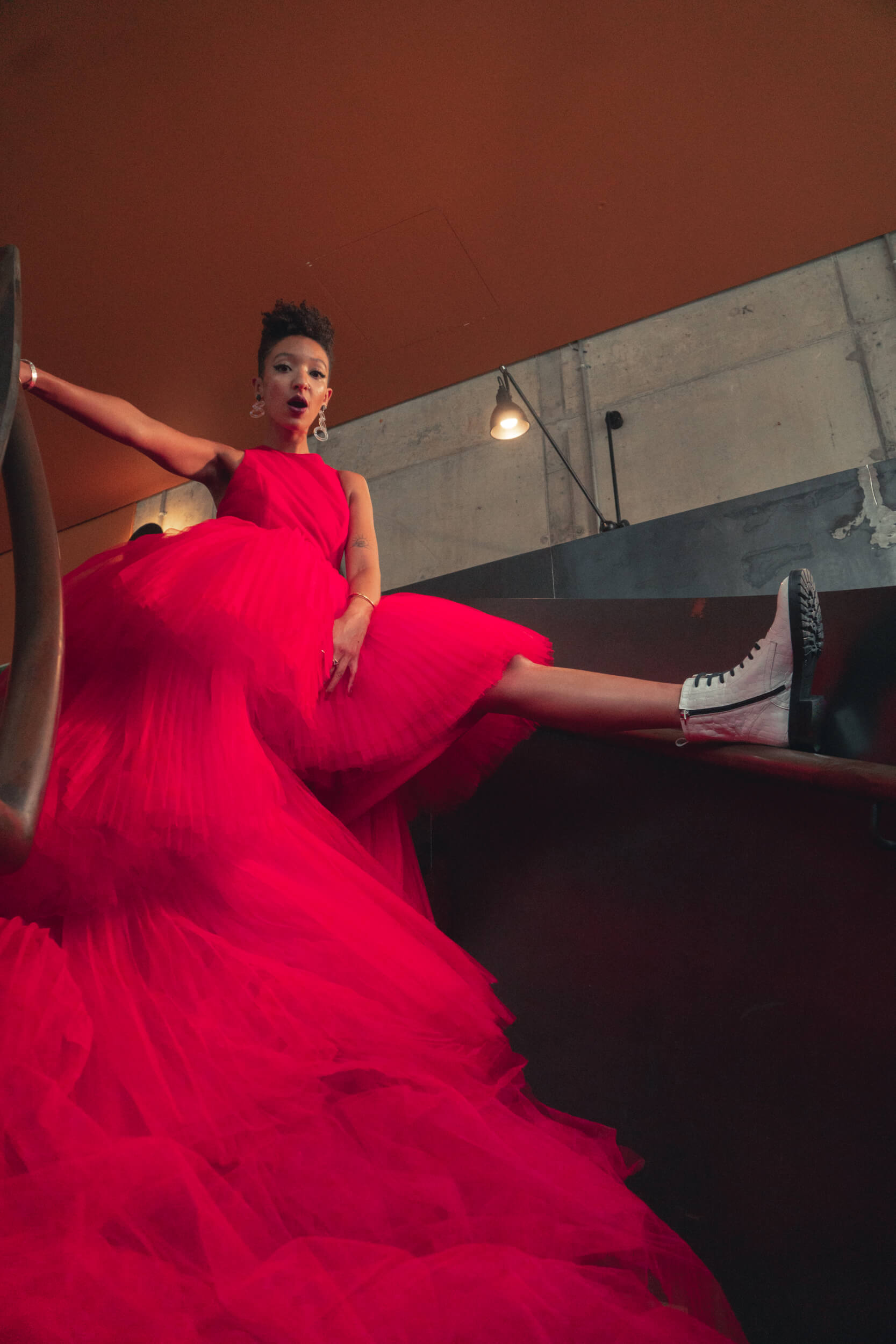
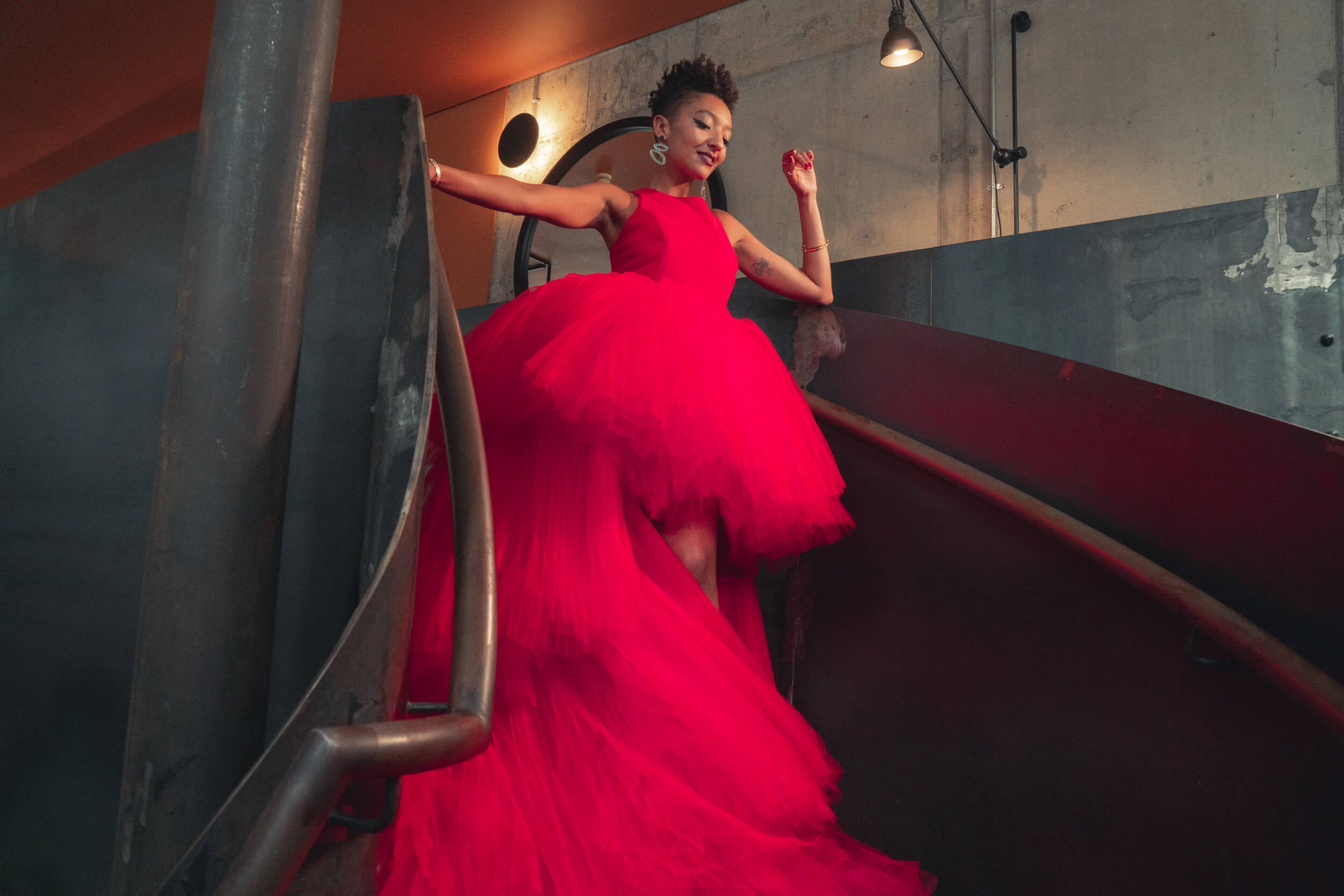
Since you cannot unveil too much about the second season, how would you describe the relationship between Ola and Otis in one word?
“Blossoming” is a good word because it is a journey and I think that’s definitely something that Ola and Otis’ relationship has.
What’s your favorite character from the show?
I think it has to be Lily, which is Tanya Reynolds’s character [laughs]. She’s so good, so brilliant and I love watching her work, she’s my favorite character.
The funniest moment on set?
There’s a lot! The phrases, “can you just pick a dick from the box of dicks?” Or well “penises,” sorry! That we have a box of penises which I find hilarious, the whole conversation, talking about genitalia in a very serious way always makes me laugh.
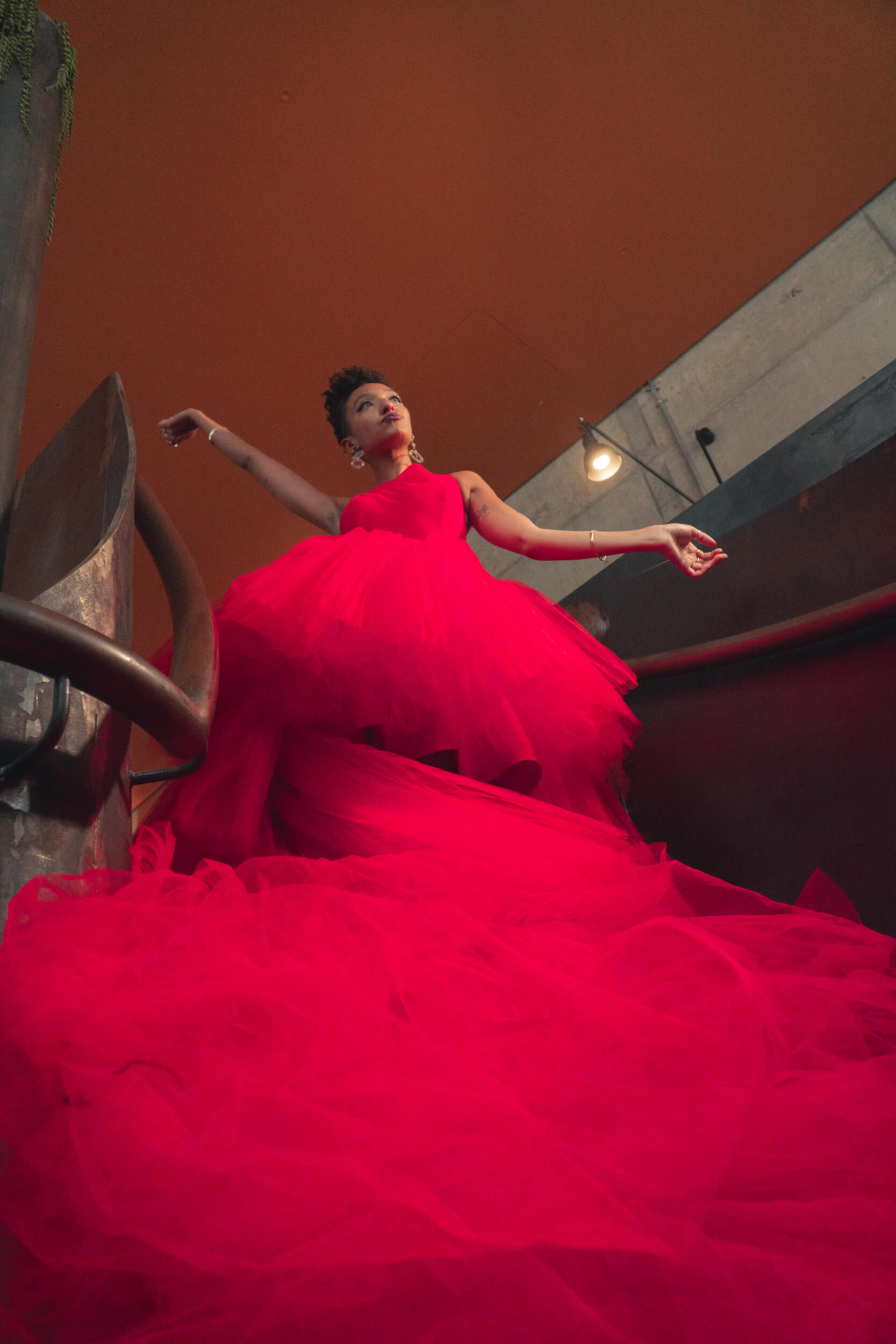
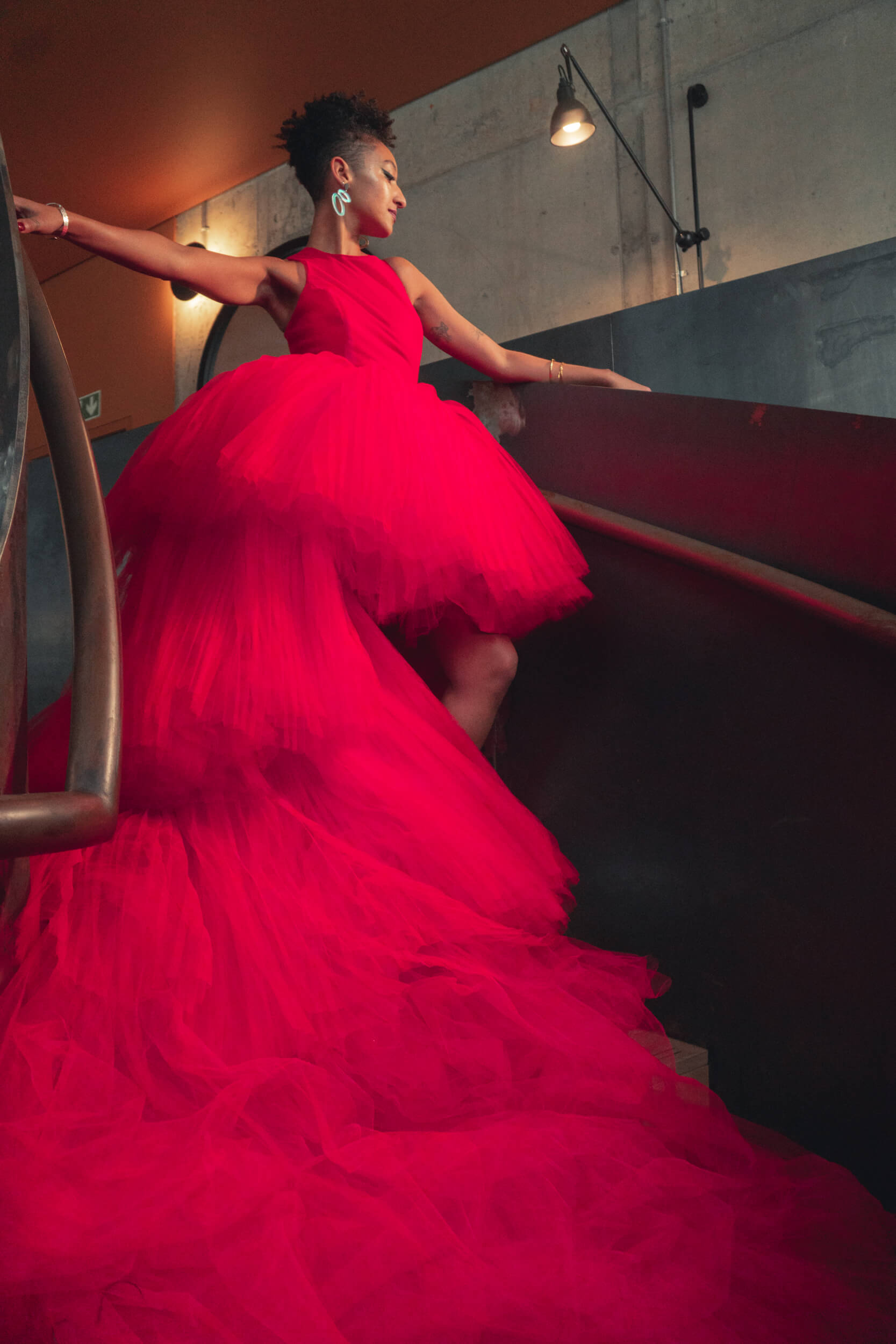
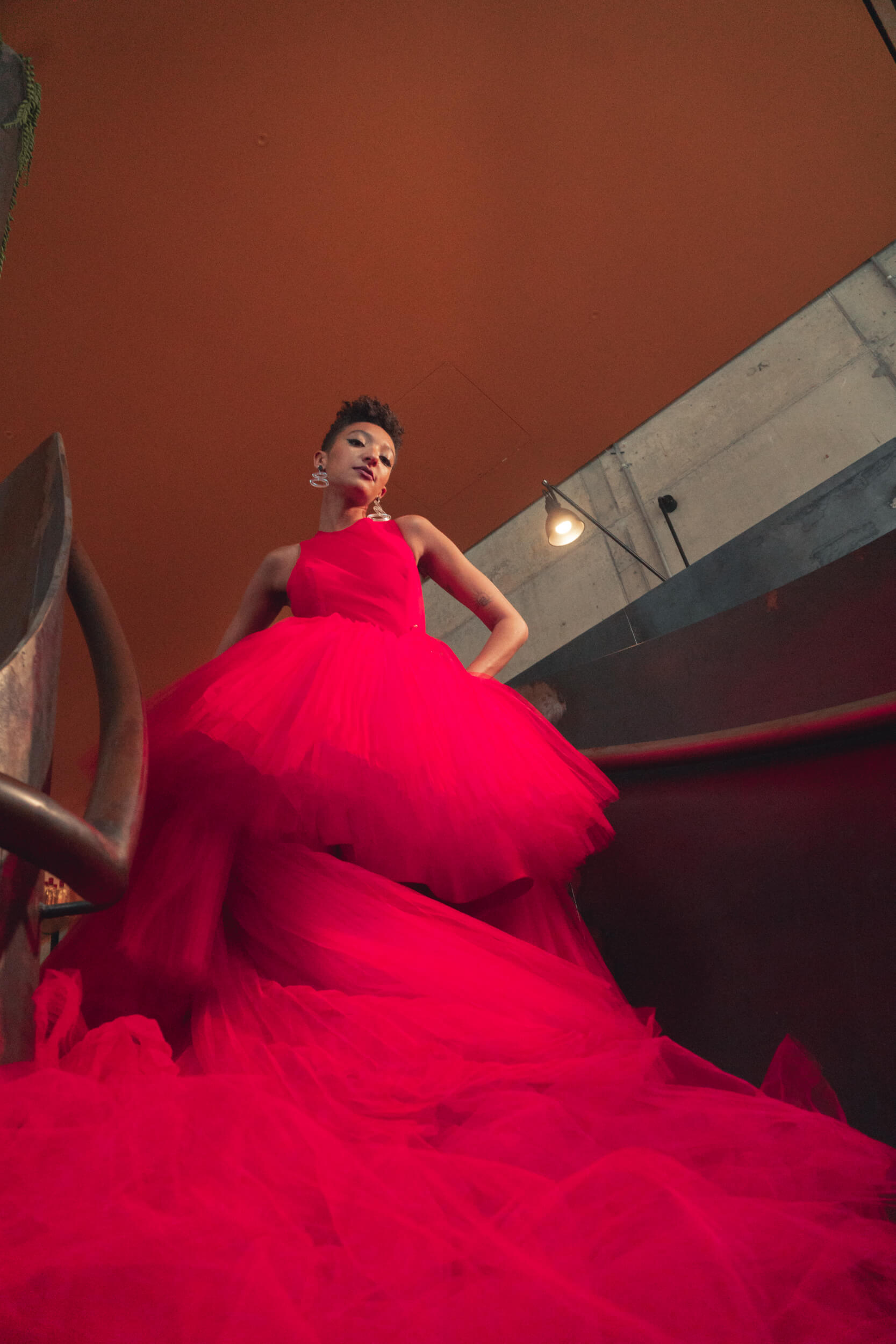
“Blossoming.”
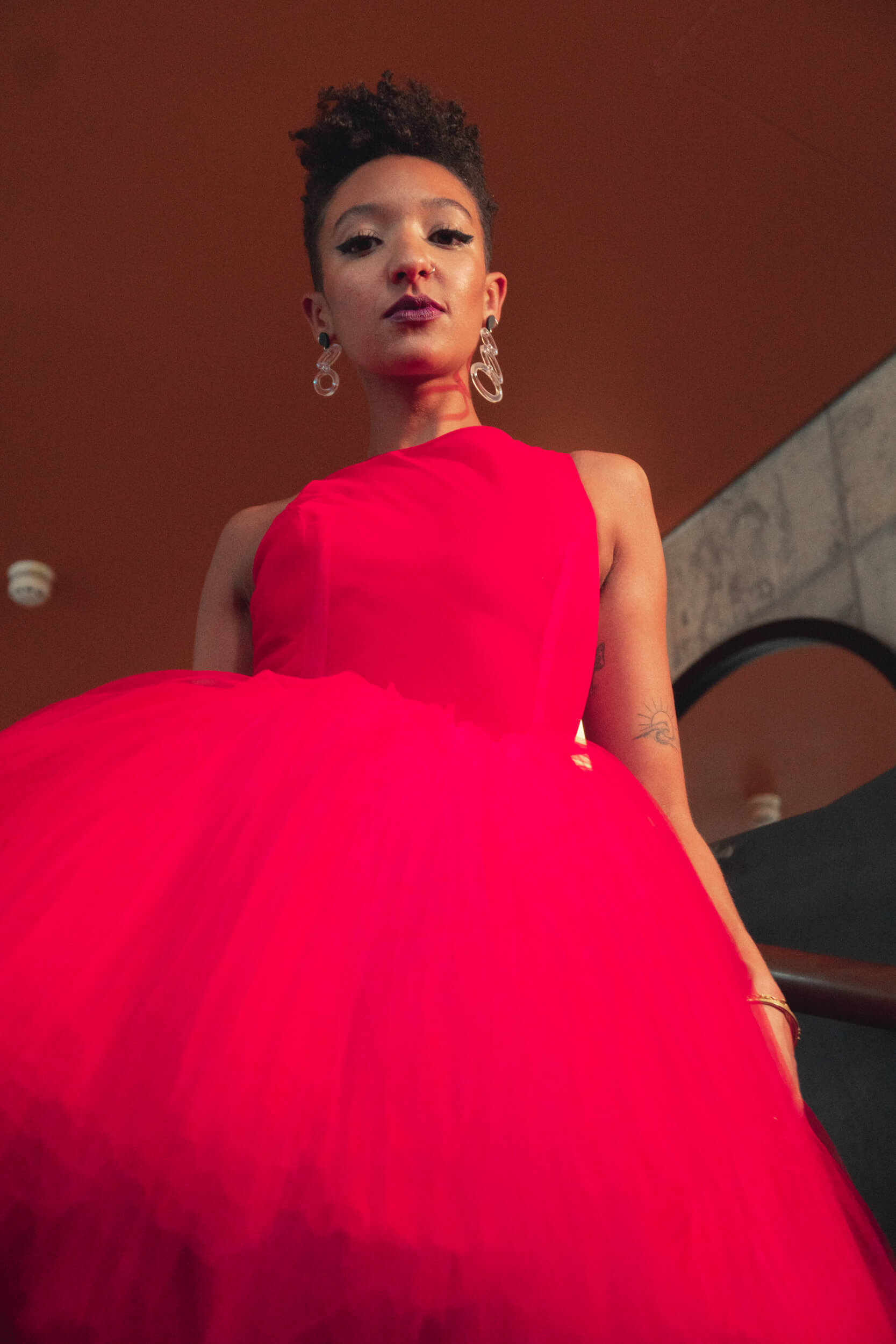
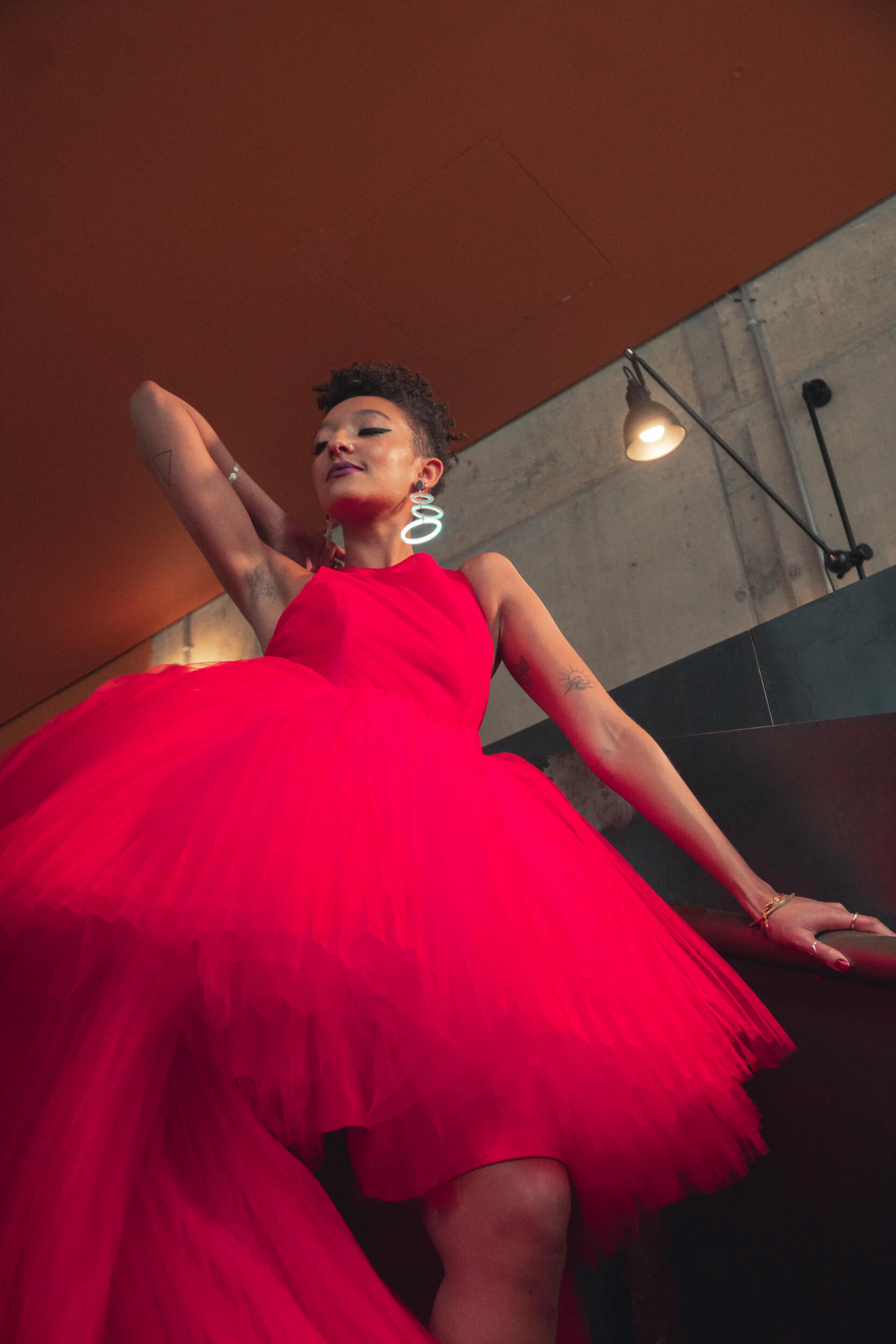
What’s your “guilty pleasure” film?
“Love actually.” I love it, I used to watch it a lot when I was young, like on repeat, that and “The Holiday,” I was obsessed.
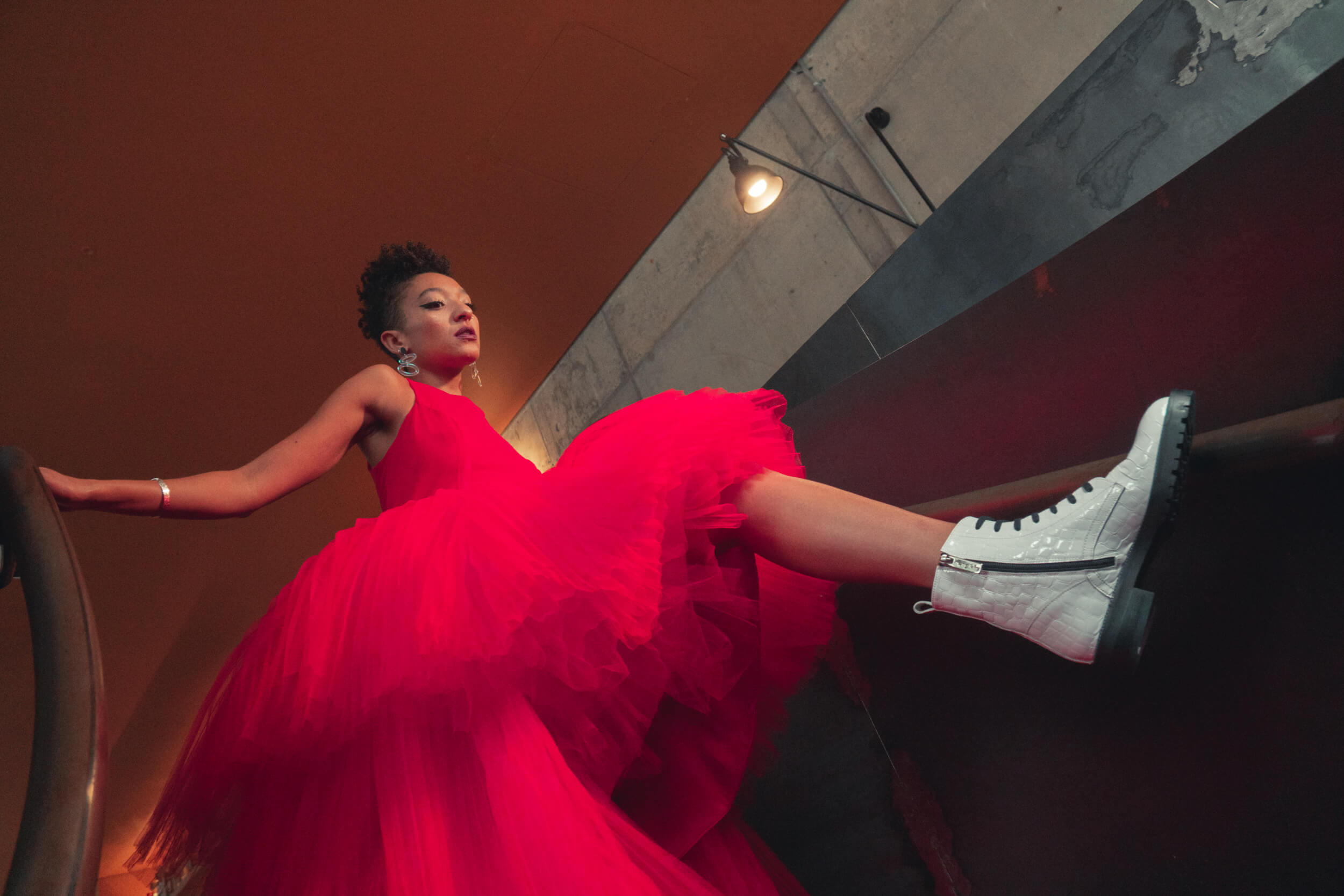
What about writing?
Sometimes I do write, spoken words or little poems, but I’ve not written anything like a script yet, but there’s time, and I would love to do that. I would love to direct and write and make my own things. I play a little bit of guitar, I love to sing, so for me, in any way I can be creative, I’ll channel it.
What are the stories you dream to tell?
They definitely got to do with me as well in terms of being mixed-raced, offering more women of color a platform and to tell more stories that are just about women, that are interesting and that we haven’t heard of because I’m sure there’s many. And I think there’s so much to explore so I would never want to limit myself, but I know the kind of things that interest me and I’m a huge feminist, so if there’s anything that has to do with being black and a woman, I’m there.
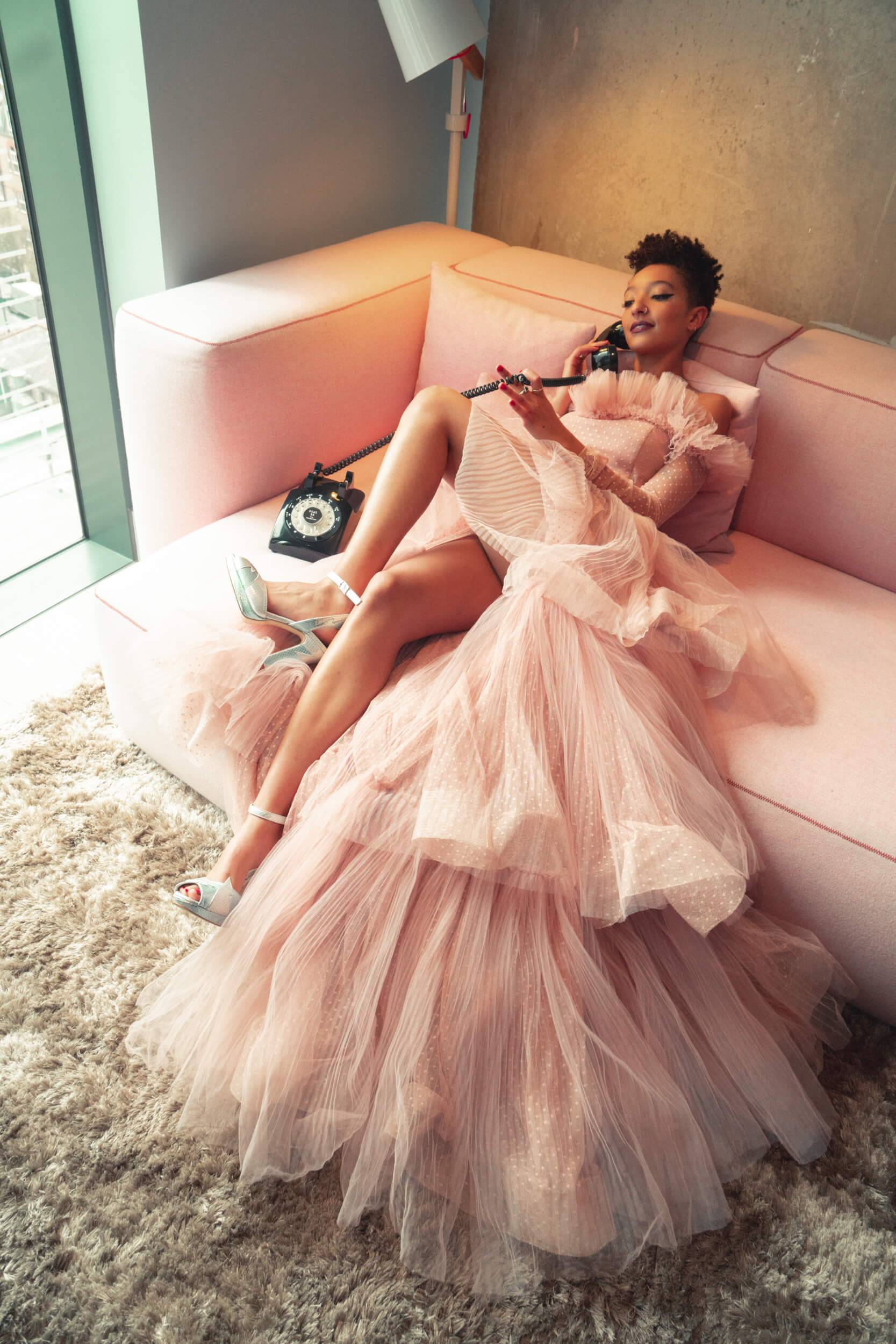
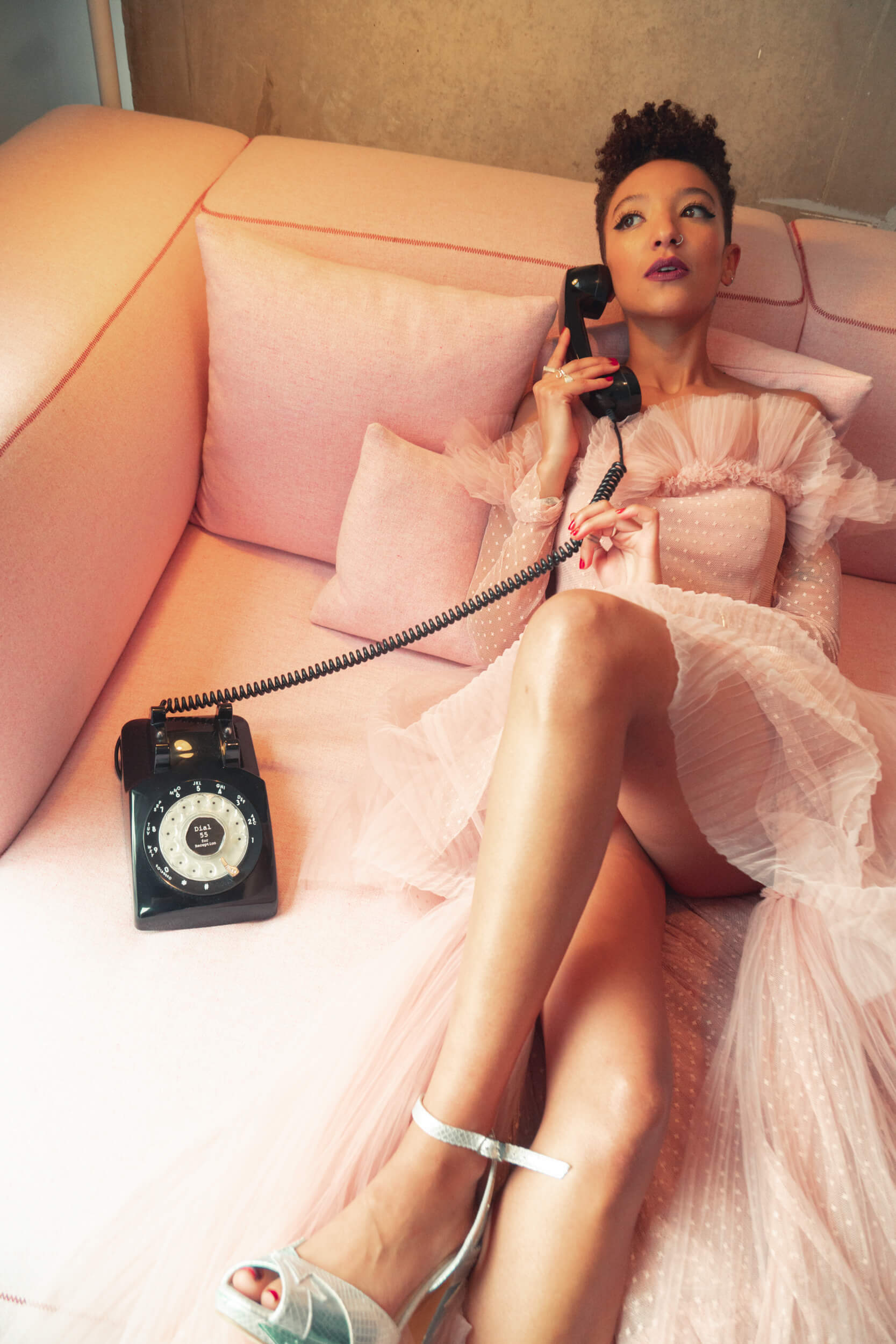
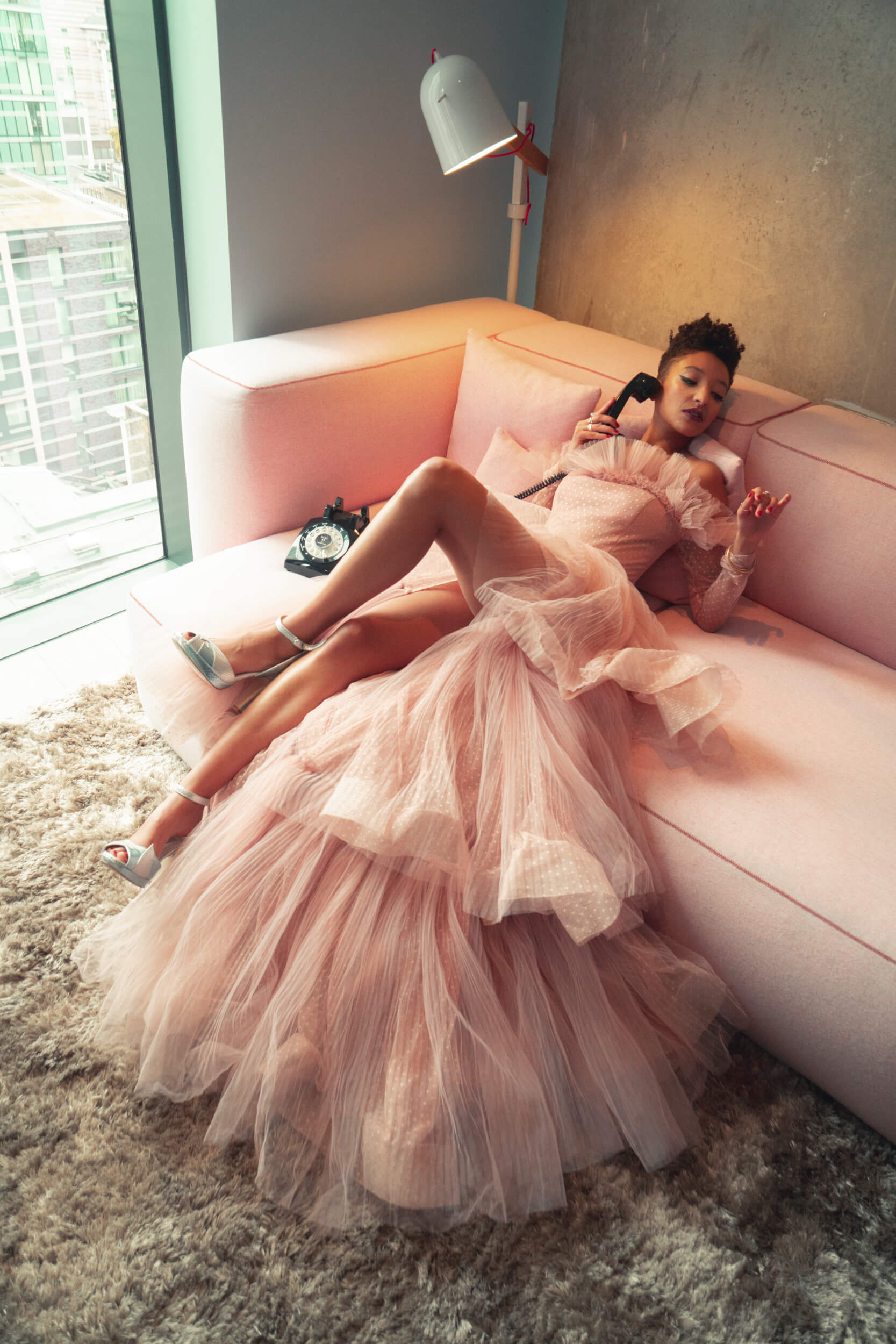
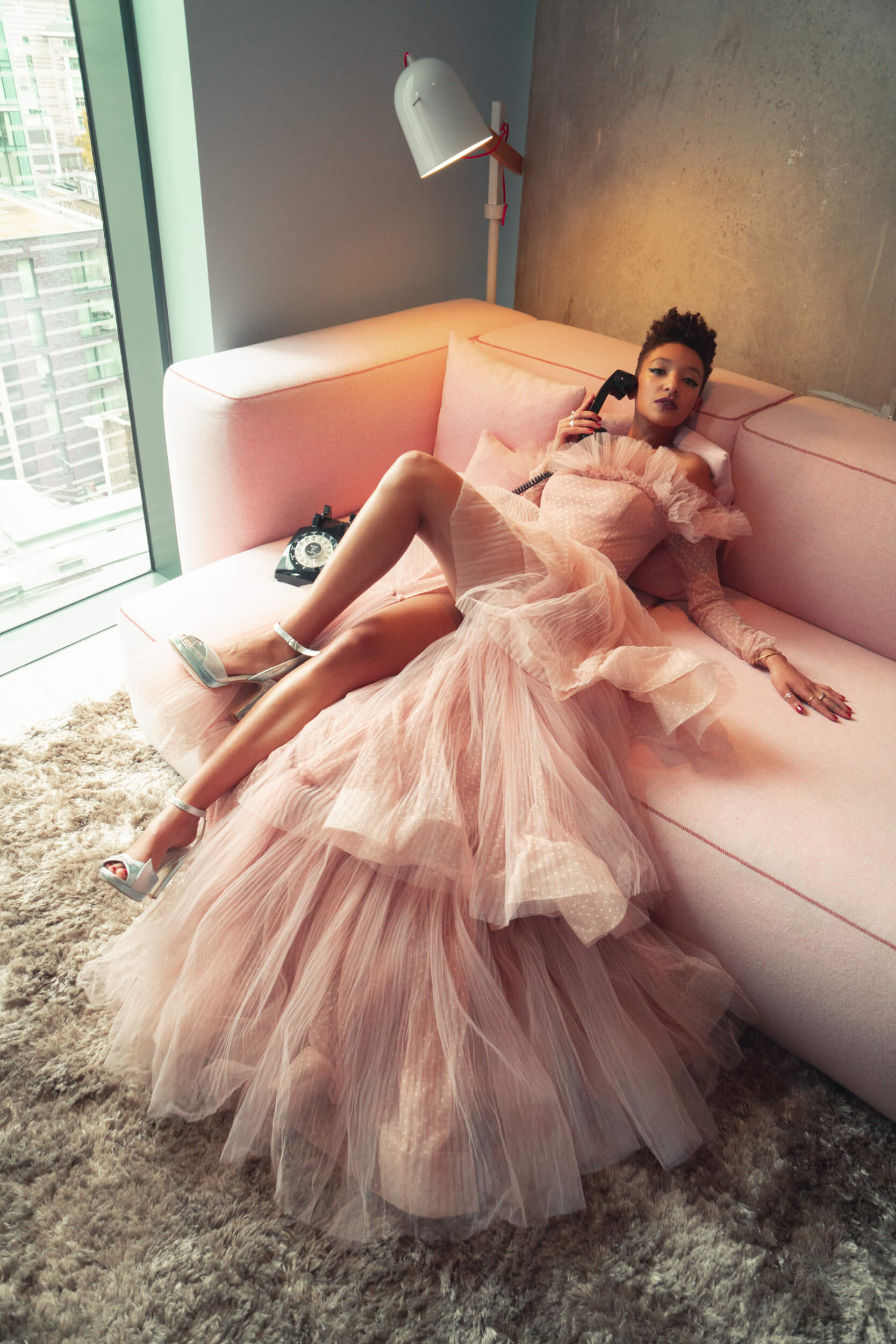
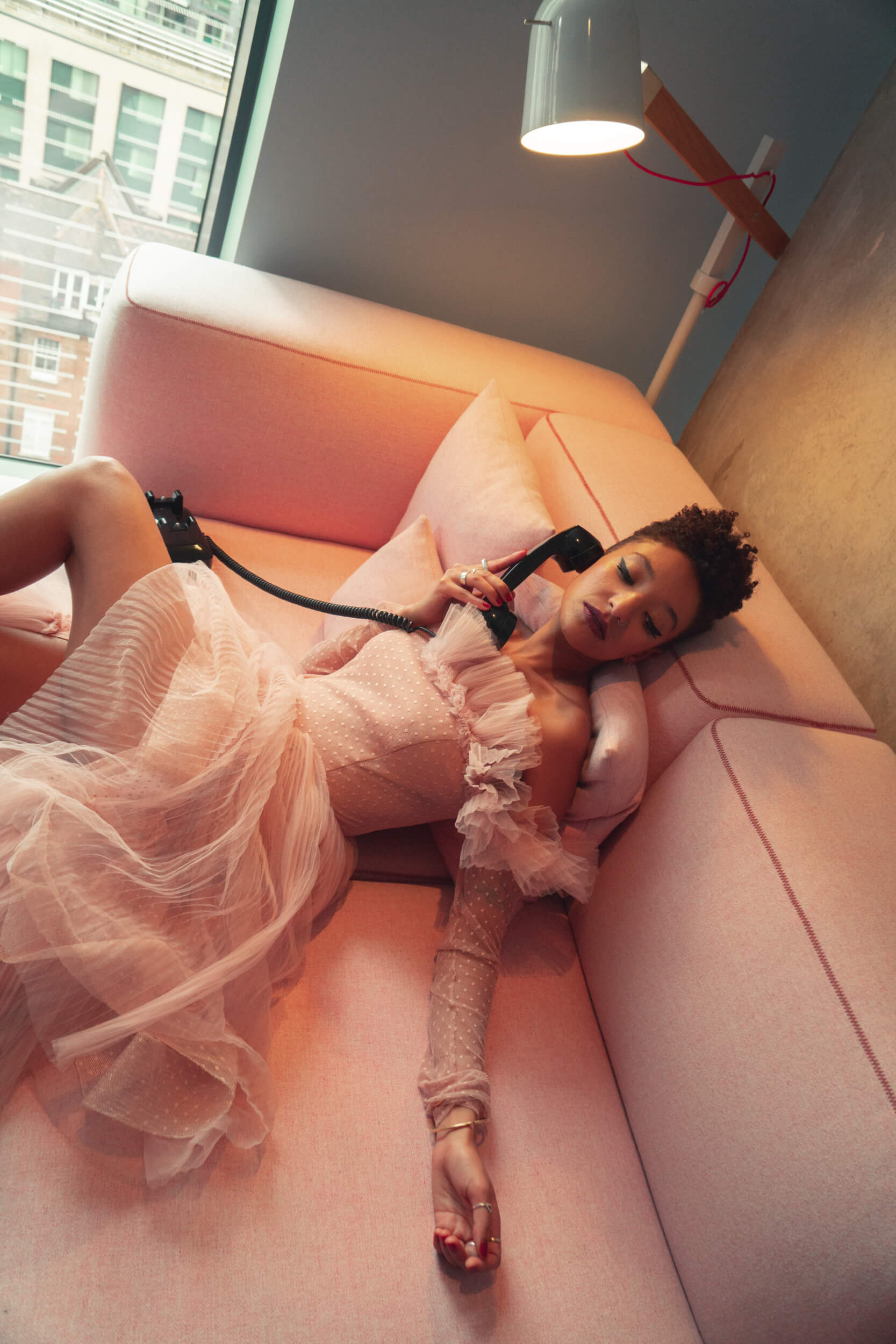
“I’m a huge feminist, so if there’s anything that has to do with being black and a woman, I’m there.”
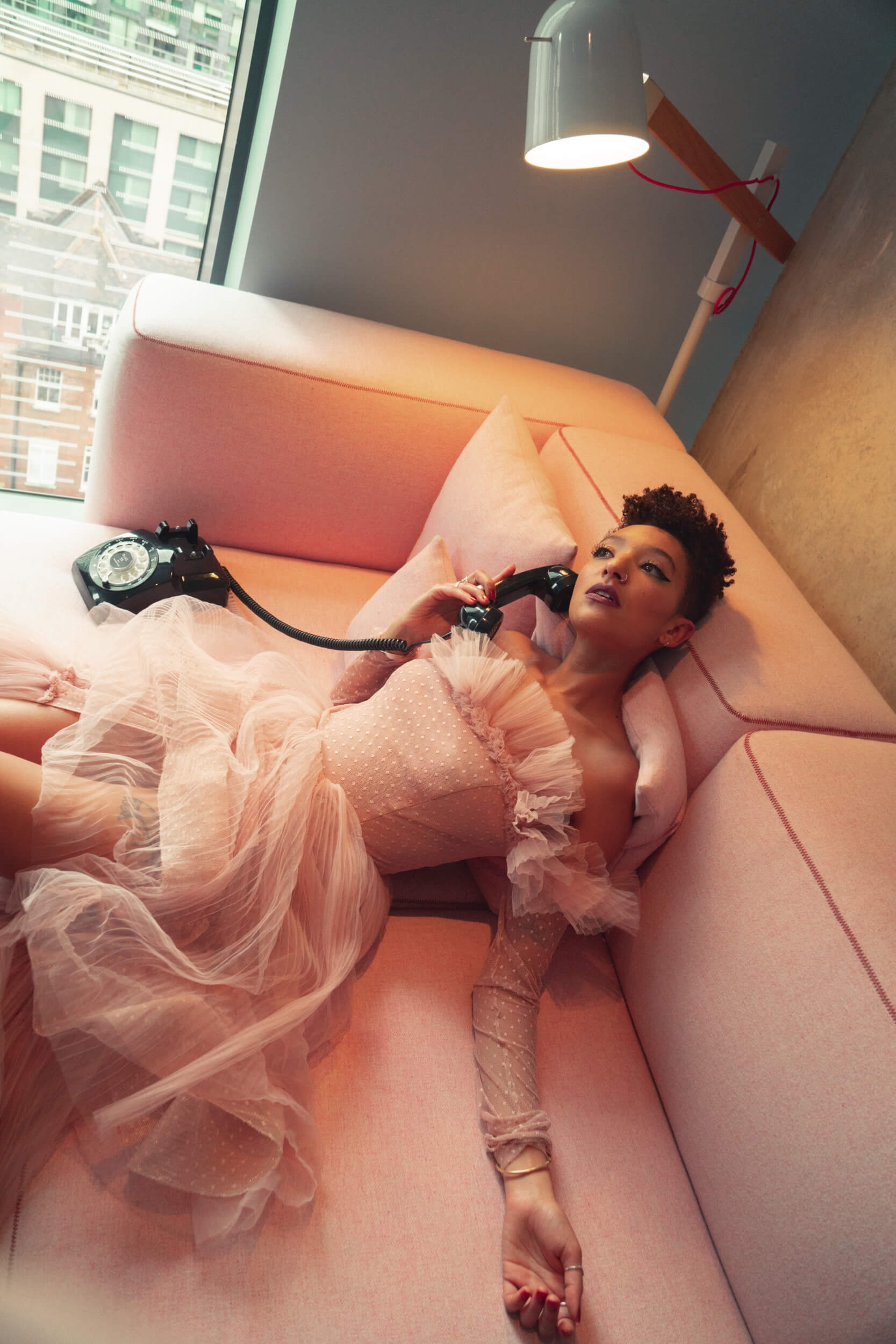
You’re must-have on set.
Water. I can’t live without it, I know it sounds ridiculous, but I drink a lot of water on set, and a toilet then is another must-have [laughs].
The superpower you have or the one you wish you had.
If I could have a superpower it would be having music playing when I enter a room, almost like being in a movie.
The last TV series you’ve binge-watched.
“Big Mouth.” I’m obsessed with that, for some reason.
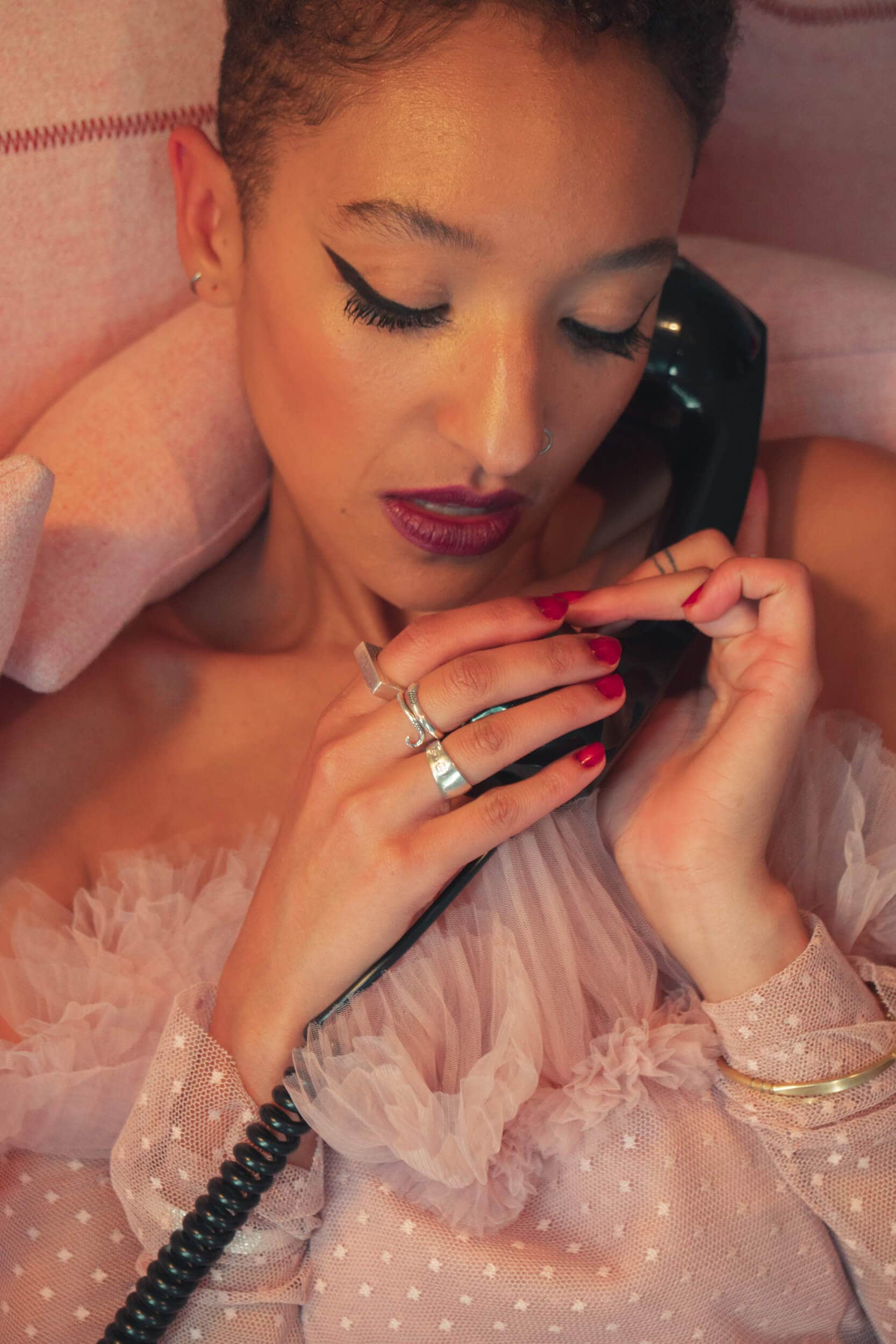
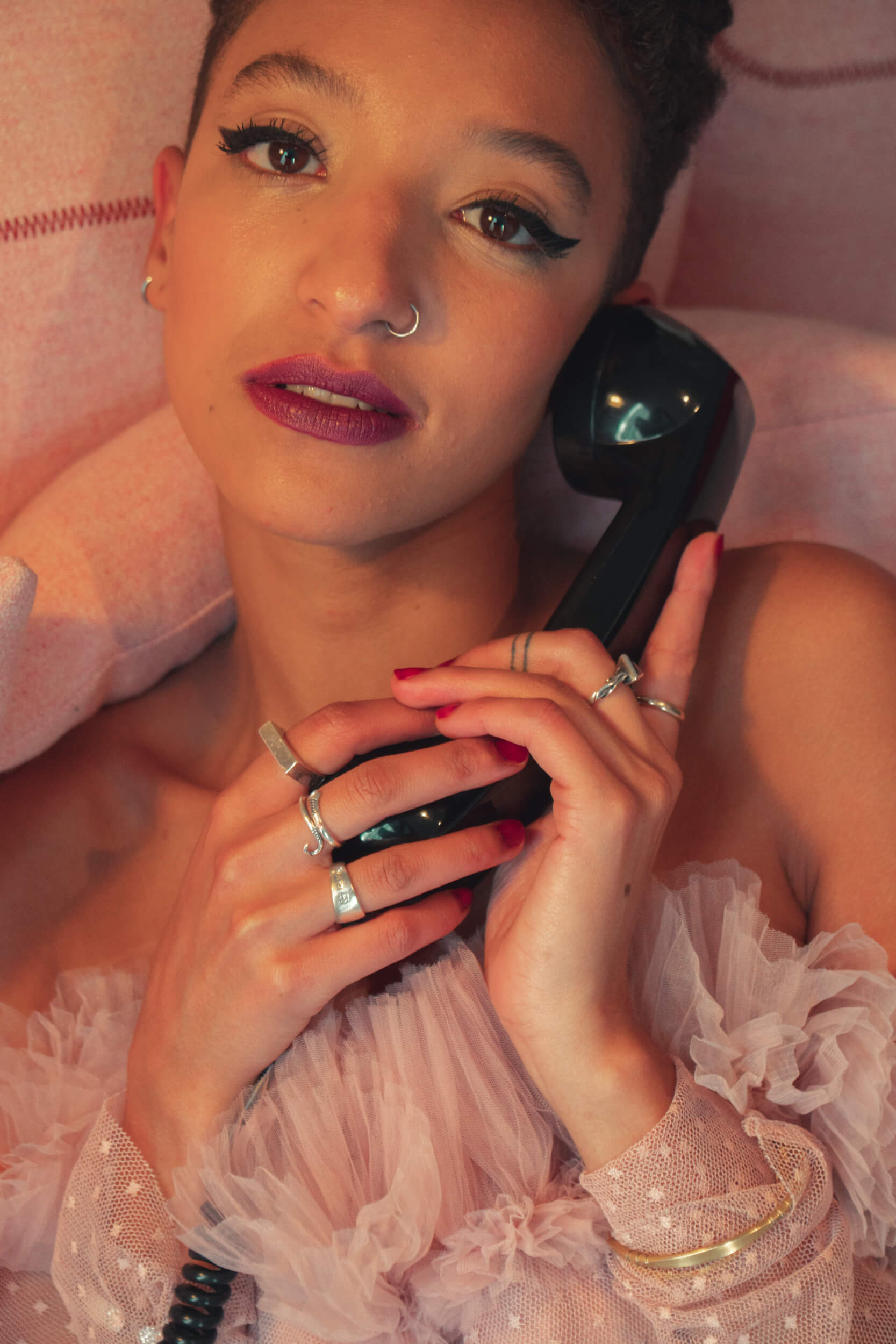
“If I could have a superpower it would be having music playing when I enter a room, almost like being in a movie”
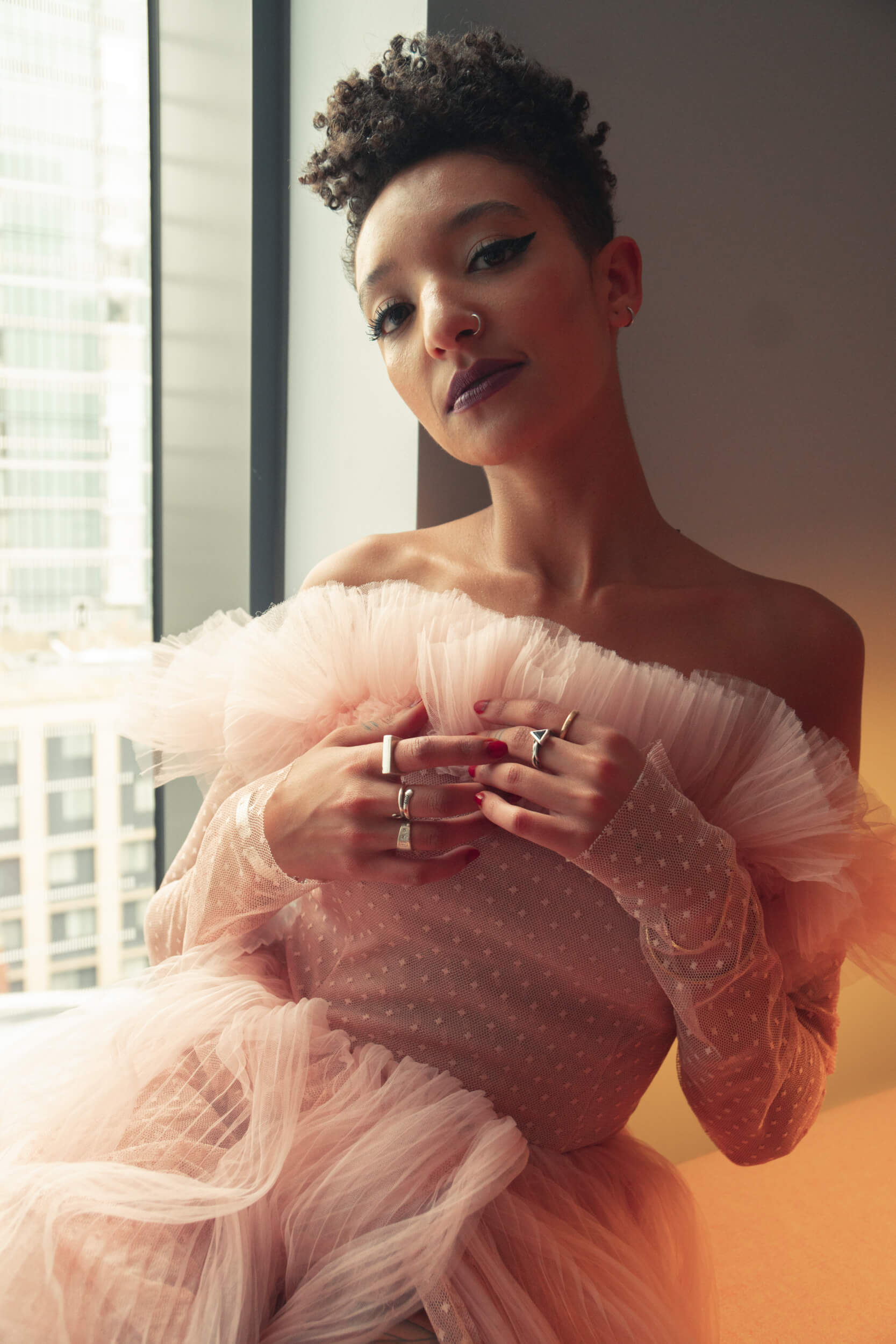
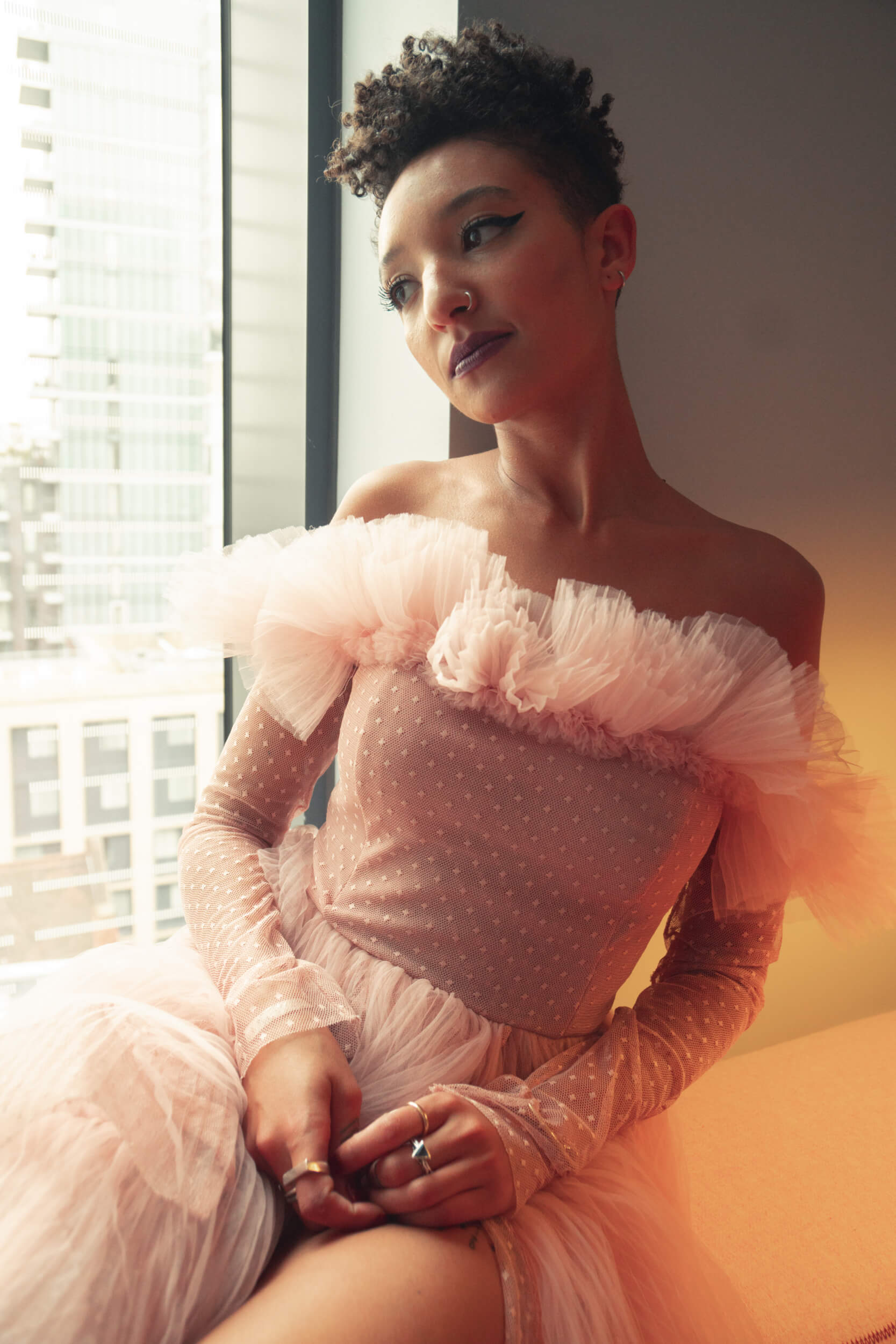
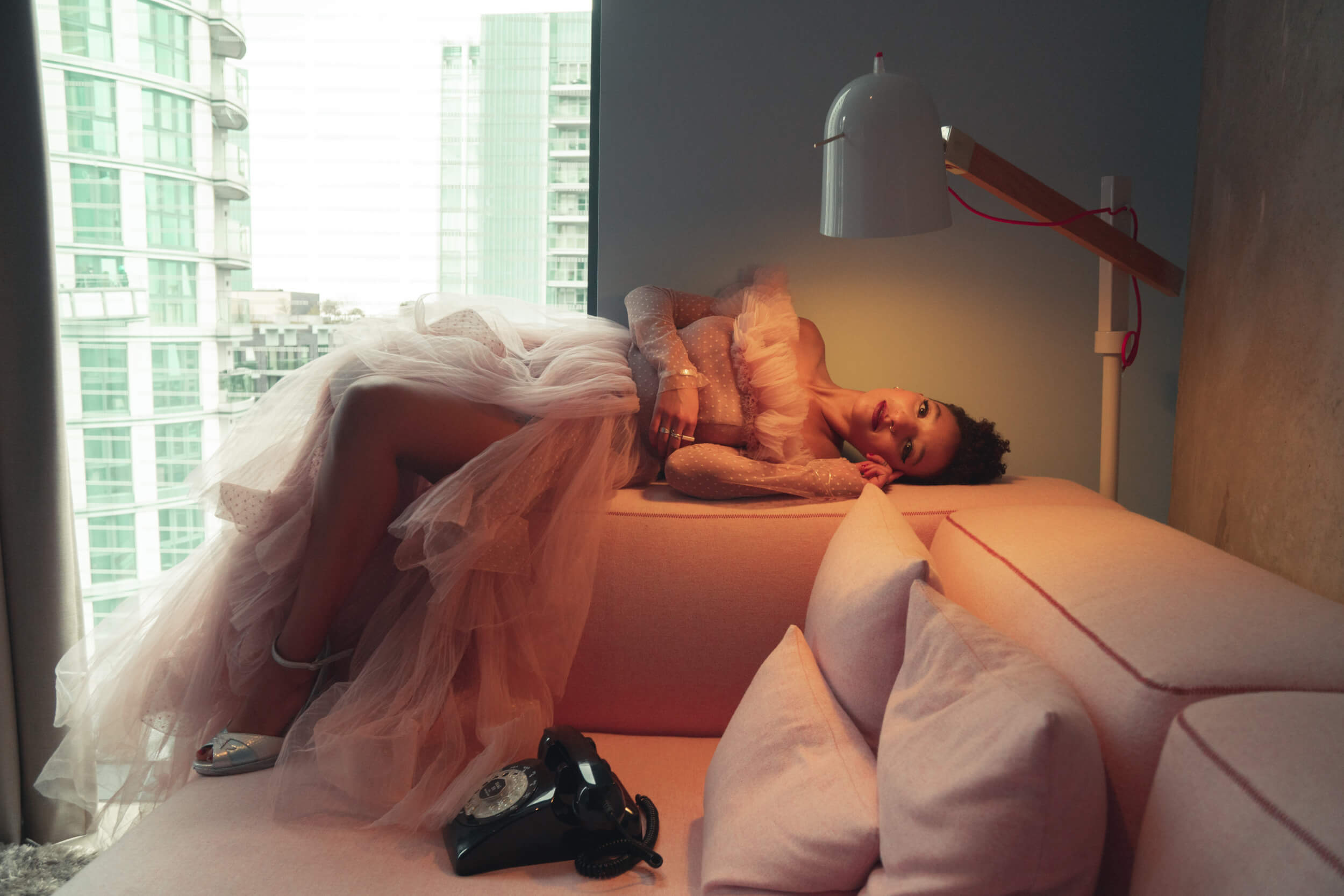
What’s the book on your nightstand?
It’s “Ain’t I a Woman?” by Bell Hooks, a bit of a hard-read, but a really well-written, beautiful book. She was the first woman to write about black feminism and she’s fantastic, she tells you about it historically and factually and is almost unemotional in it, but in that mix, it’s just very real, it’s a good read. Or “The Power of Now” as well, I always go back to that, by Eckhart Tolle.
The ones who saw the first season of “Sex Education” will understand this question: do you love cats?
I love cats! And goats, as well.
Last question: what was for you the most beautiful thing about filming “Sex Education” and about being in that project?
The most beautiful thing has got to be the energy that was created by everyone there. The people on set, the directors, the crew, all the actors, all of us together create something so special that I think it’s beautiful, and also the locations are incredible: we’re always somewhere very magical and very green and it feels like an amazing place to create freely and go above and beyond what you think you would do. I think “Sex Education” is just beautiful!
One of the most beautiful aspects of it, is that you can’t say when it takes place, it’s timeless, it’s a world in which it’s so real, it’s like Harry Potter, it’s real but it also coexists in its own, entirely different way, with its own rules and its own sunshine, because it’s always so beautiful and sunny when we film for some reason, we’re blessed with that.
The Film Wall
35mm





Credits:
Photo & Video by Johnny Carrano.
Stylist: Alex Reid.
Makeup: Caroline Barnes.
Hair: Stefan Bertin.
Thanks to Leman Locke.
Look 1:
Dress – Rotate
Shoes – Topshop
Earrings – Toolally
Look 2:
Full look – Pritch London
Shoes – Topshop
Look 3:
Dress – Malan Breton
Shoes – Terry de Havilland
Earrings – Toolally
Look 4:
Dress – Zeynep Kartal
Shoes – Terry de Havilland

